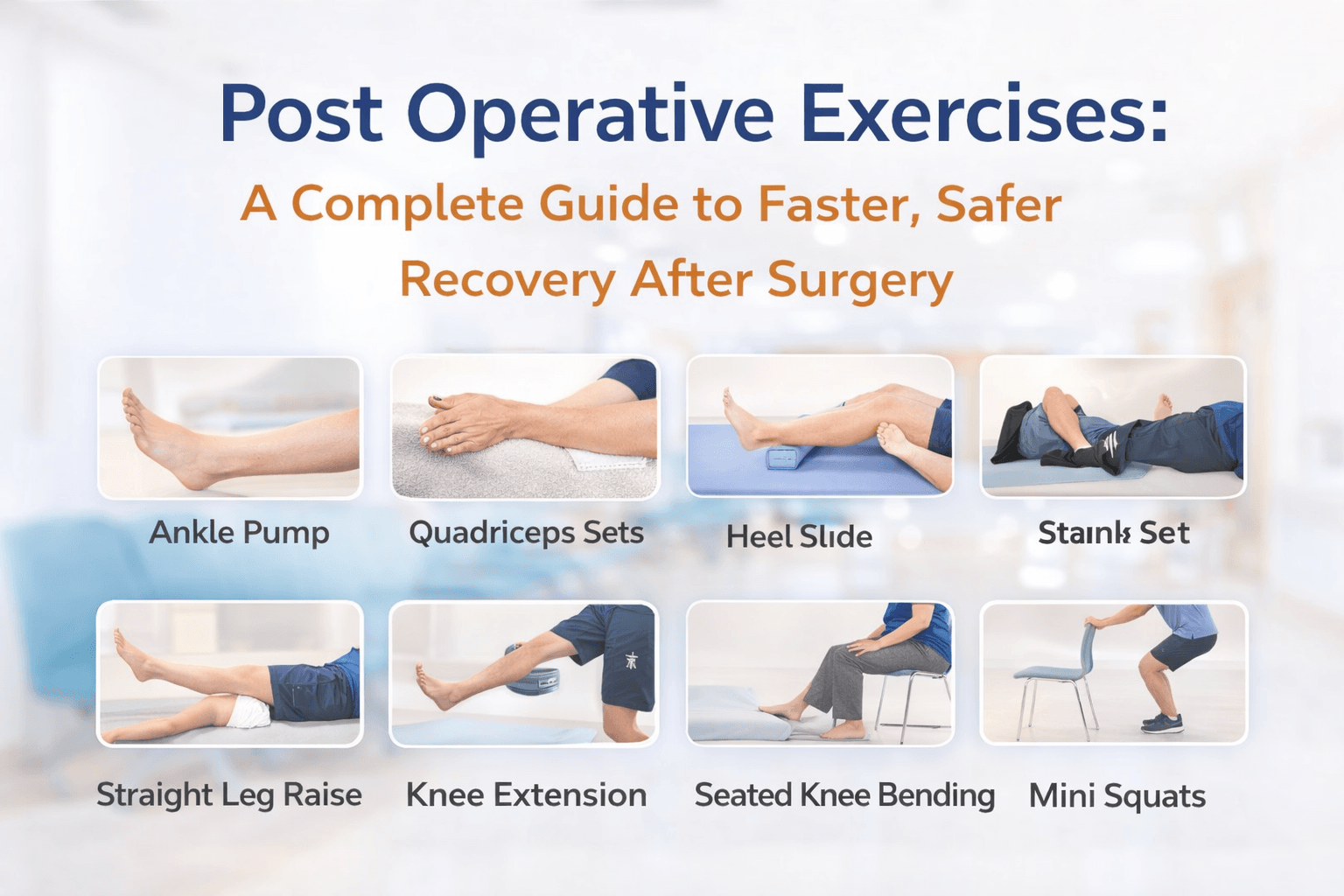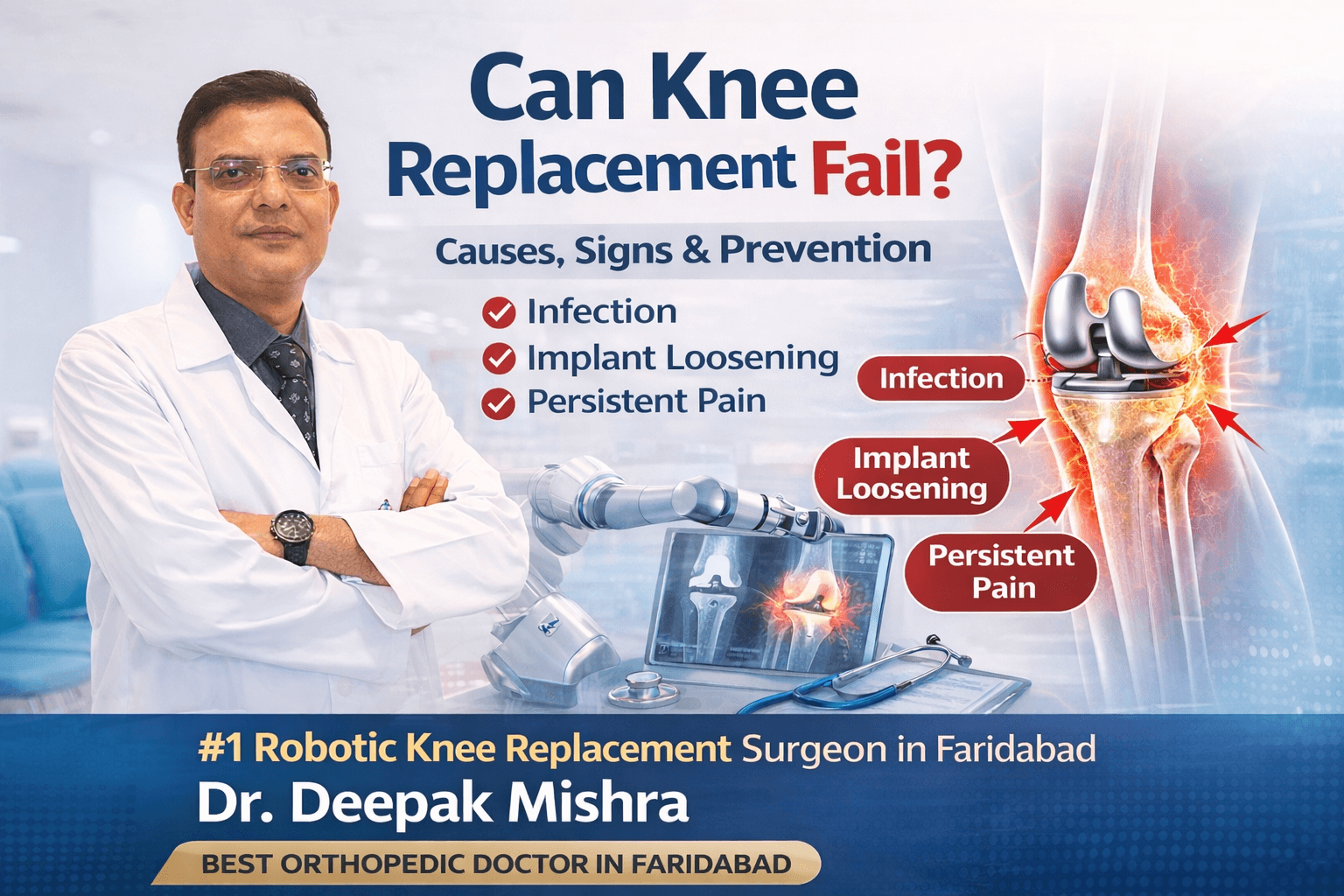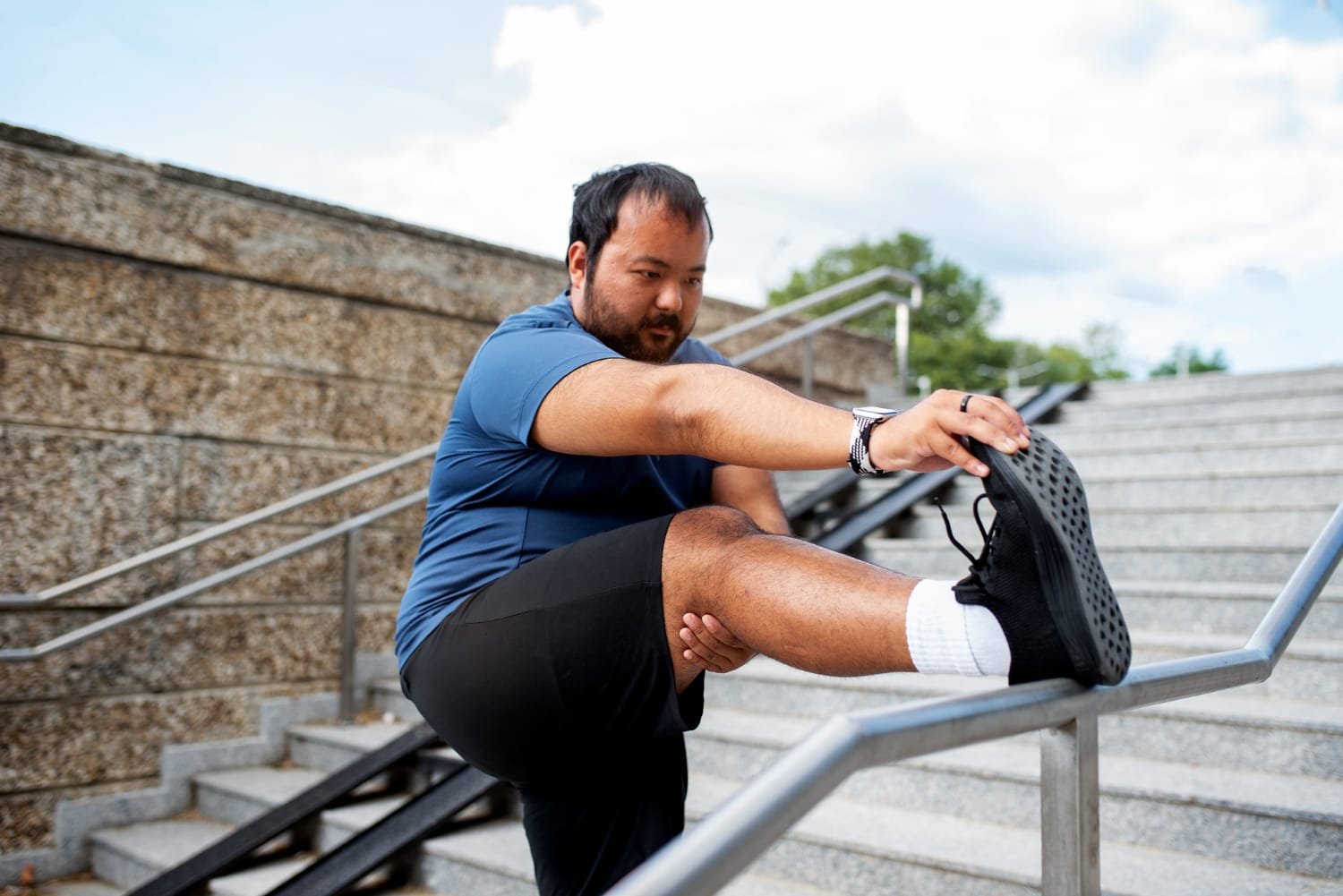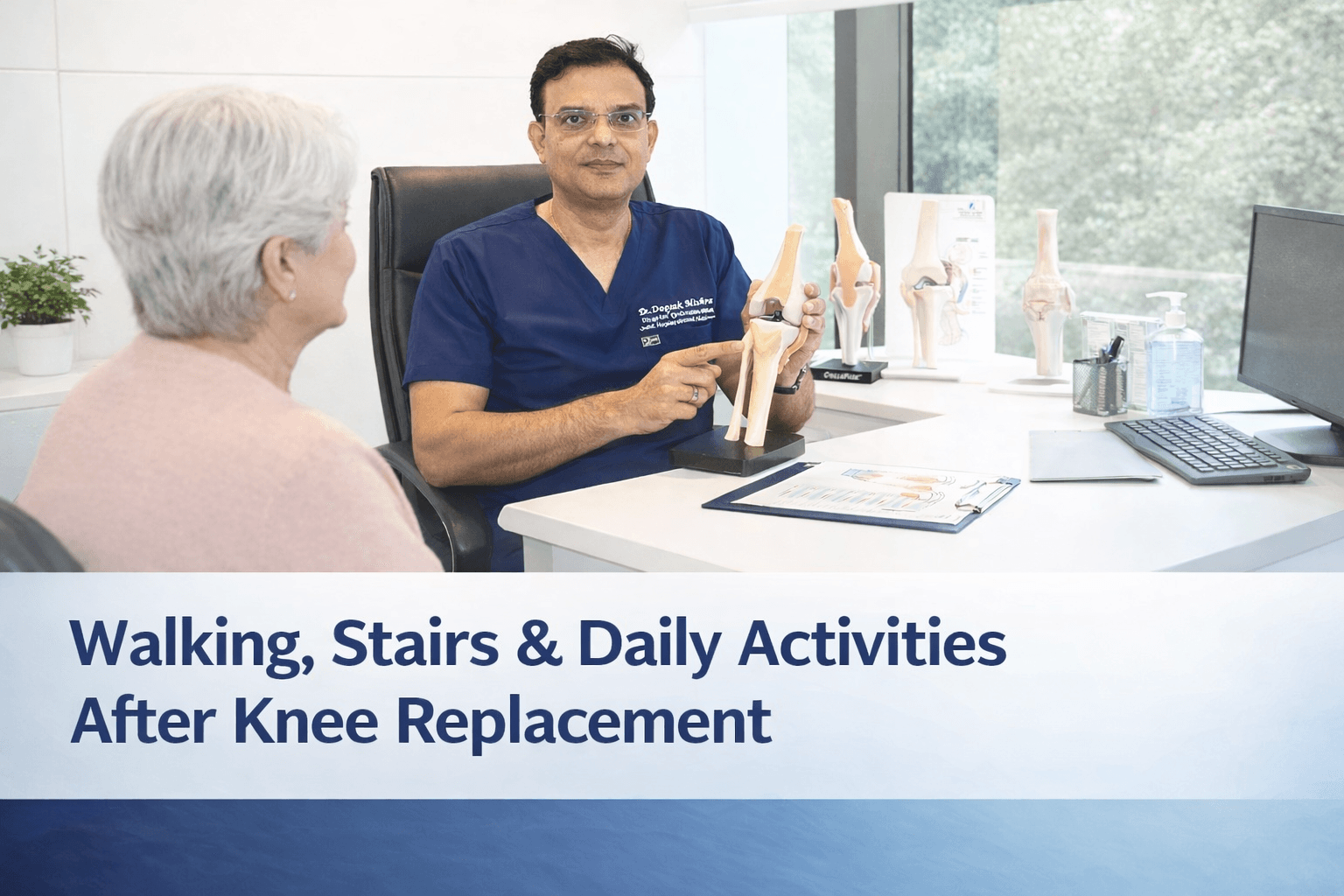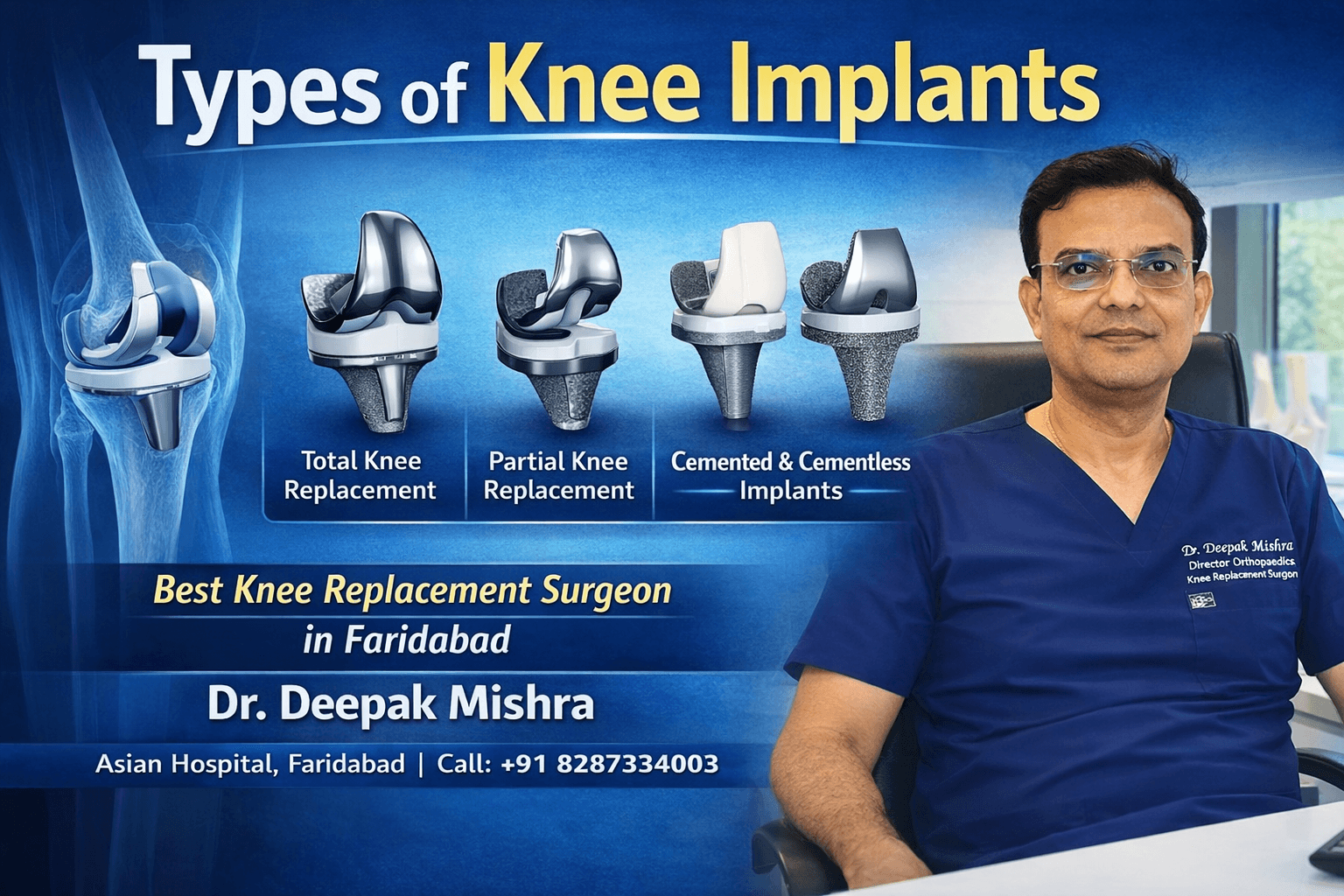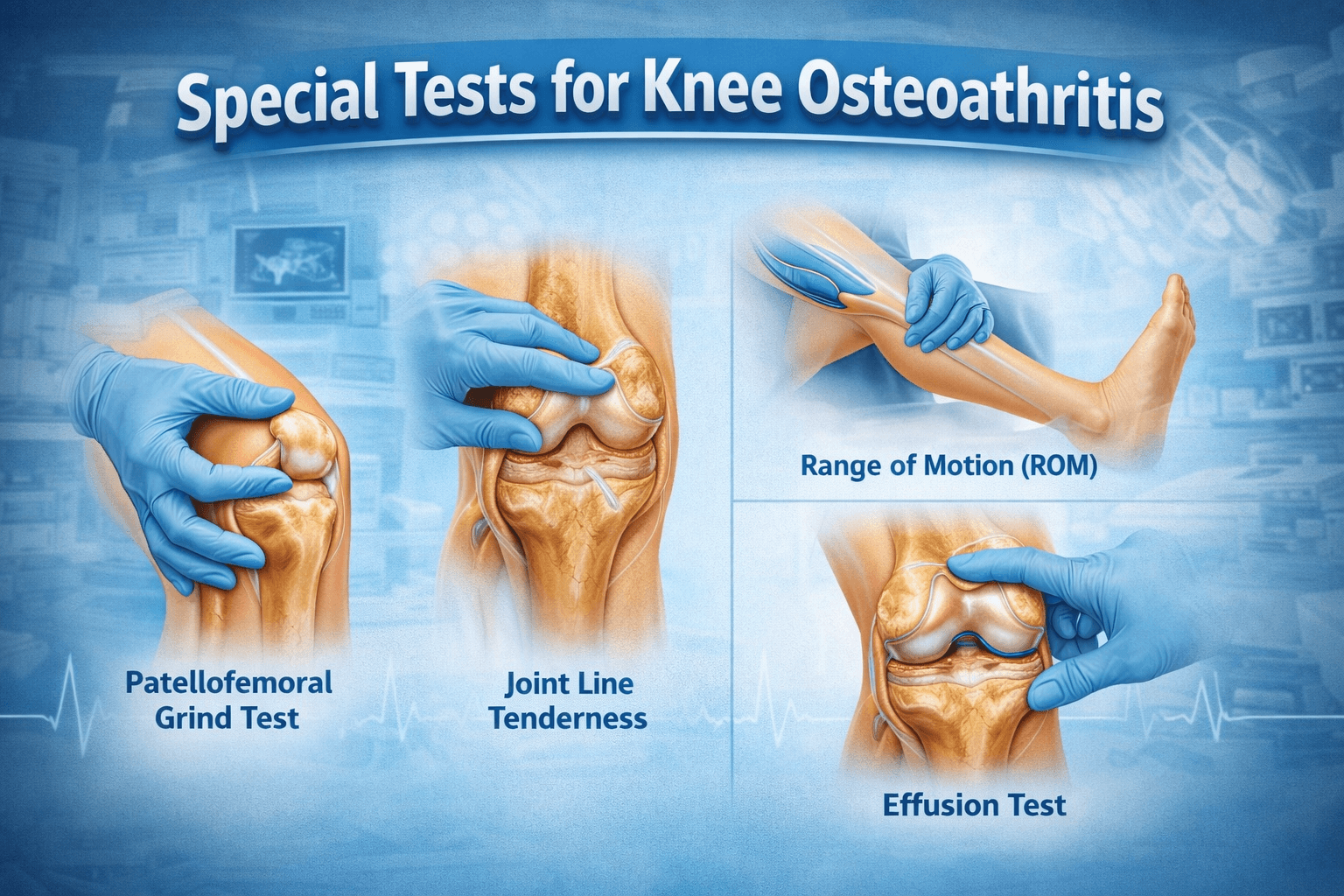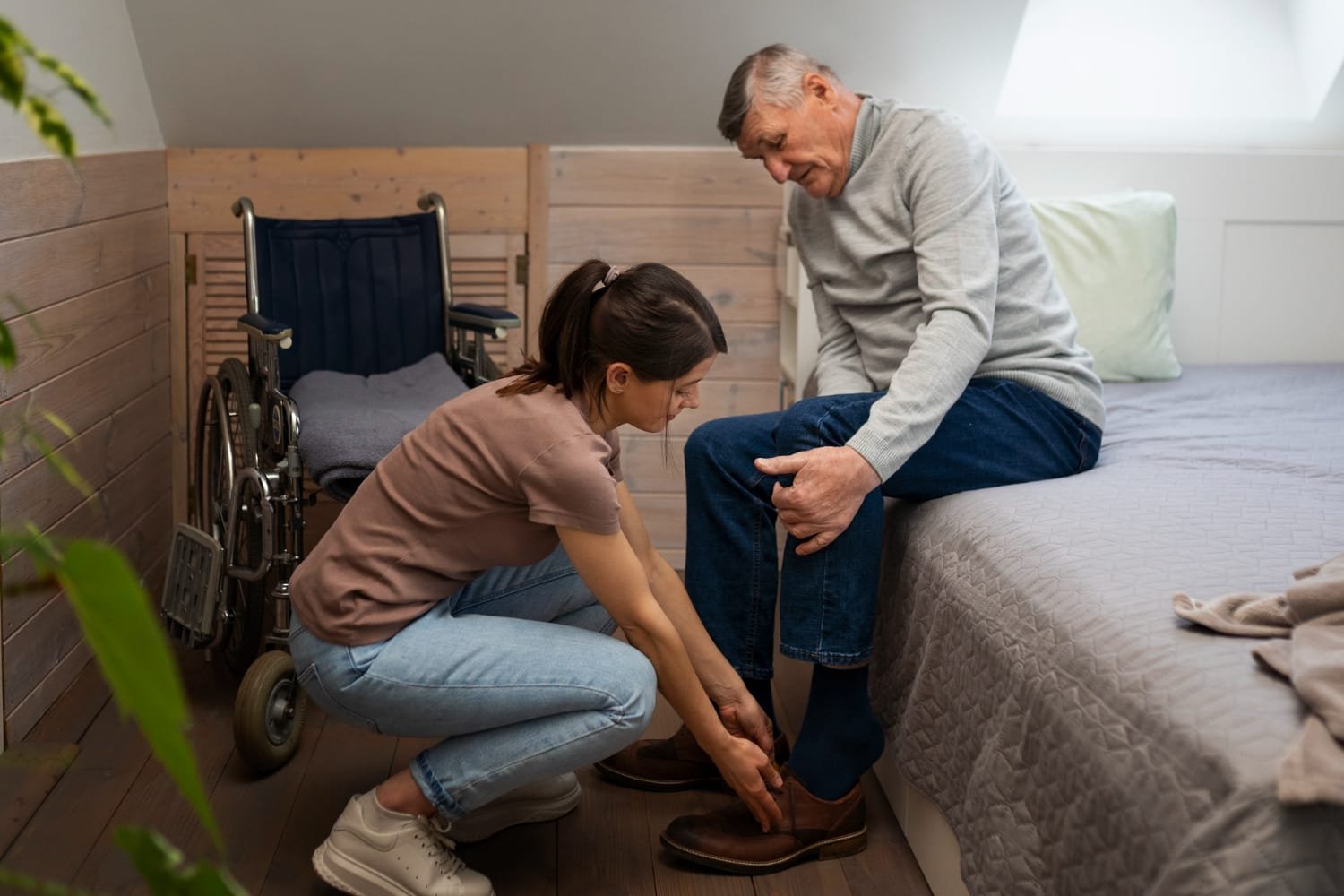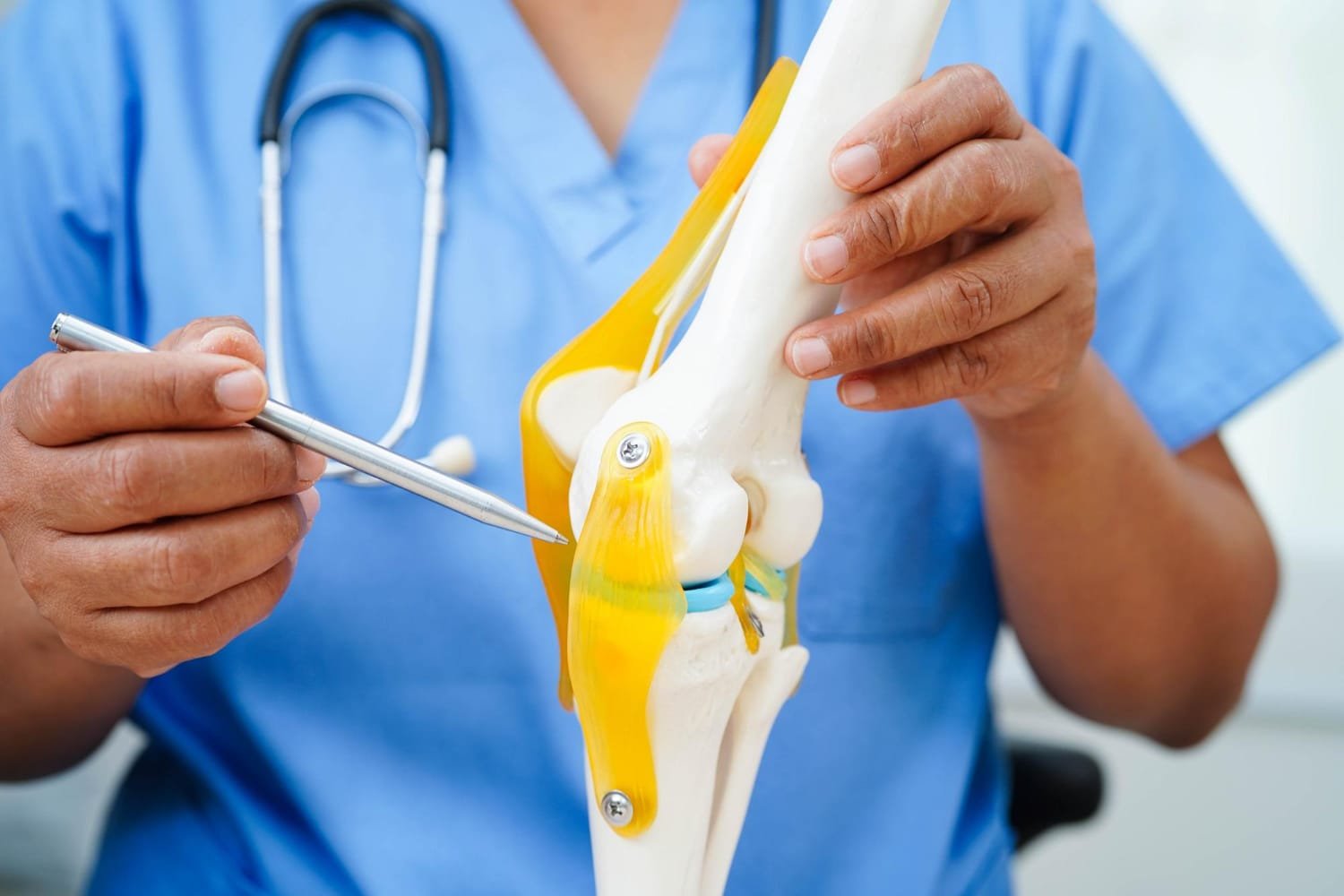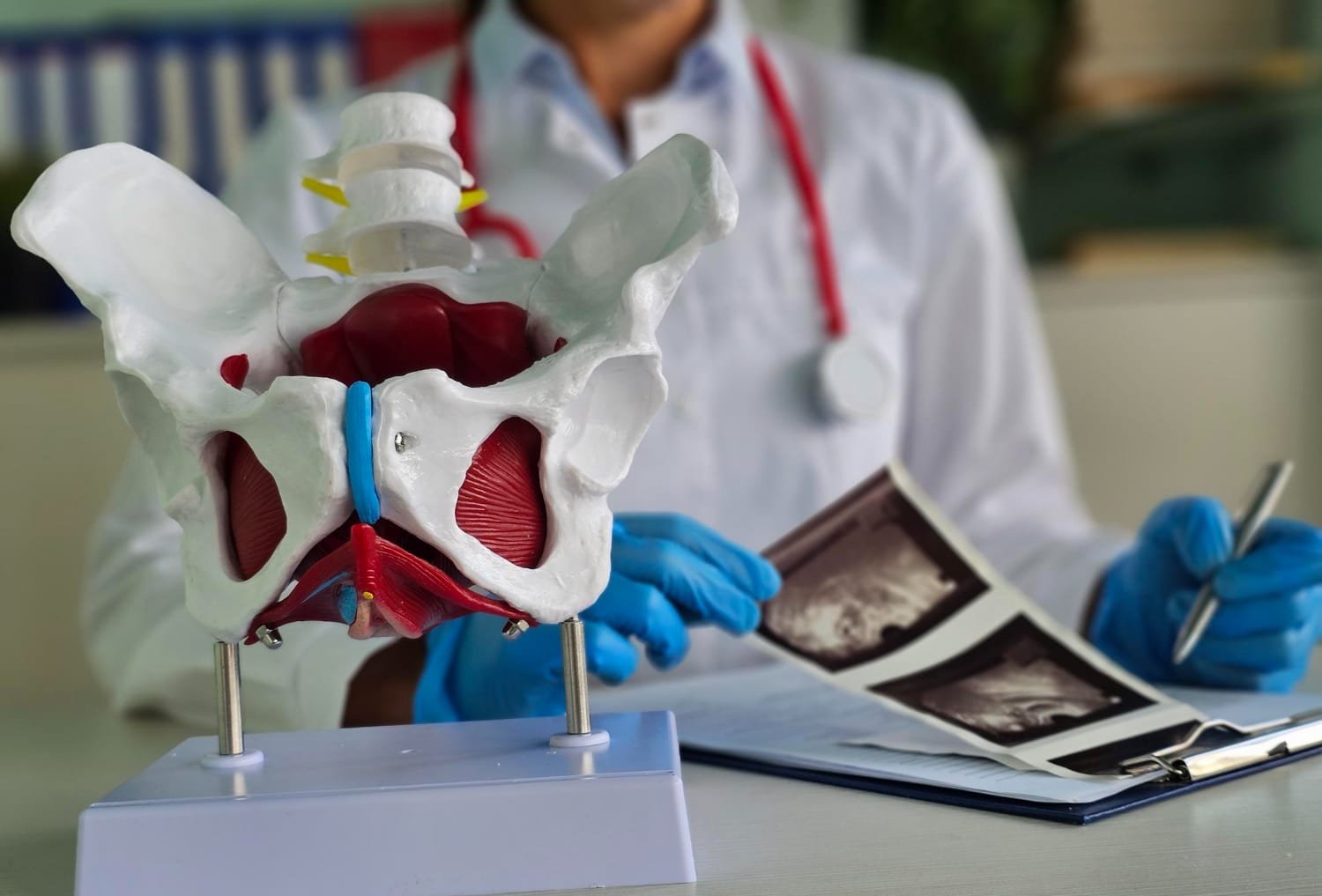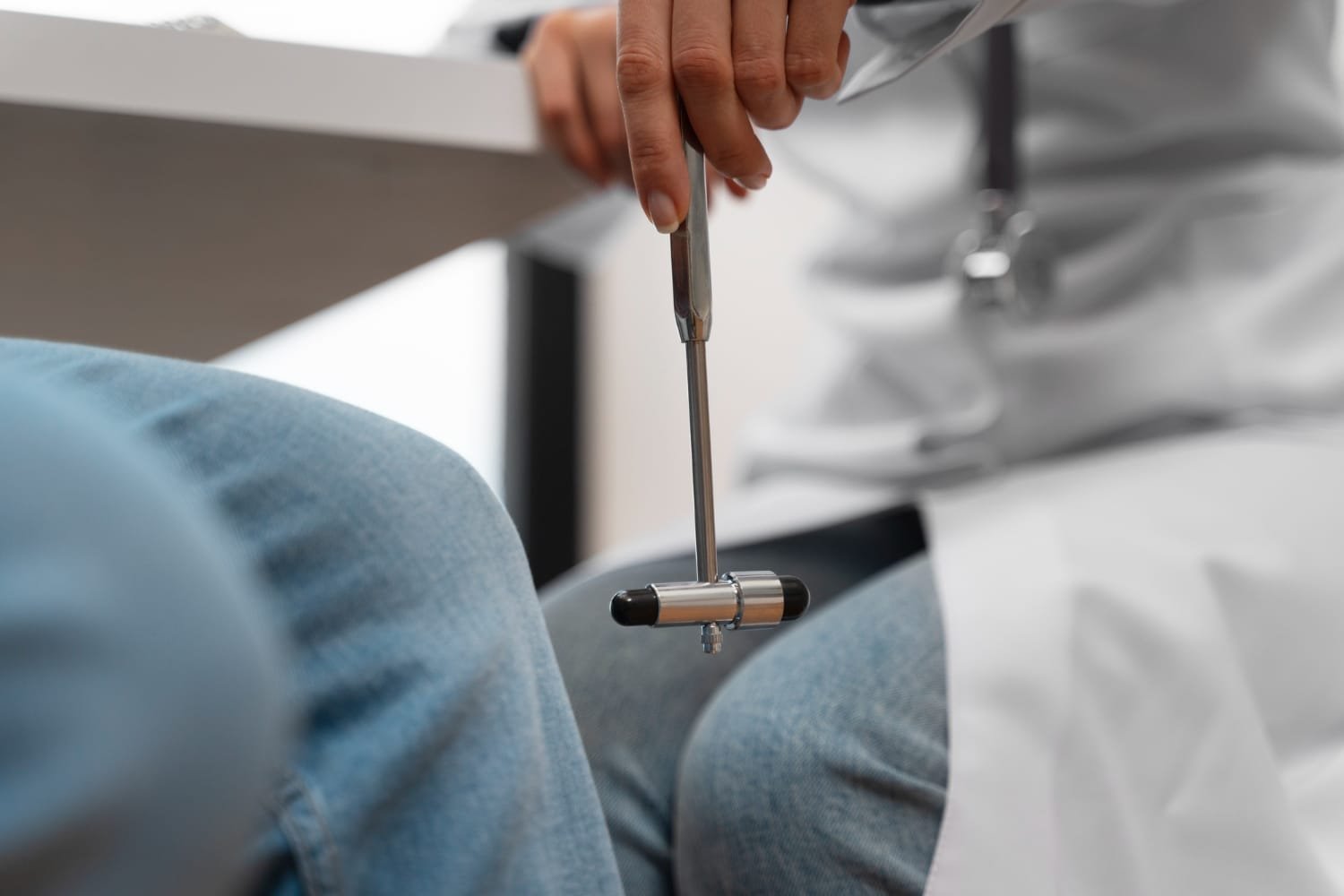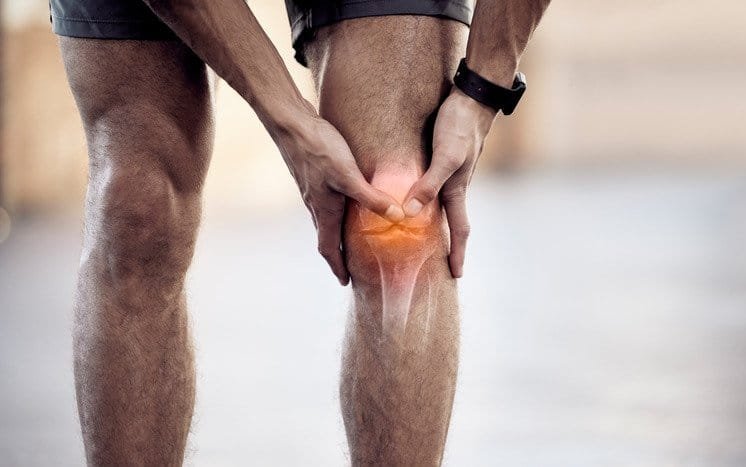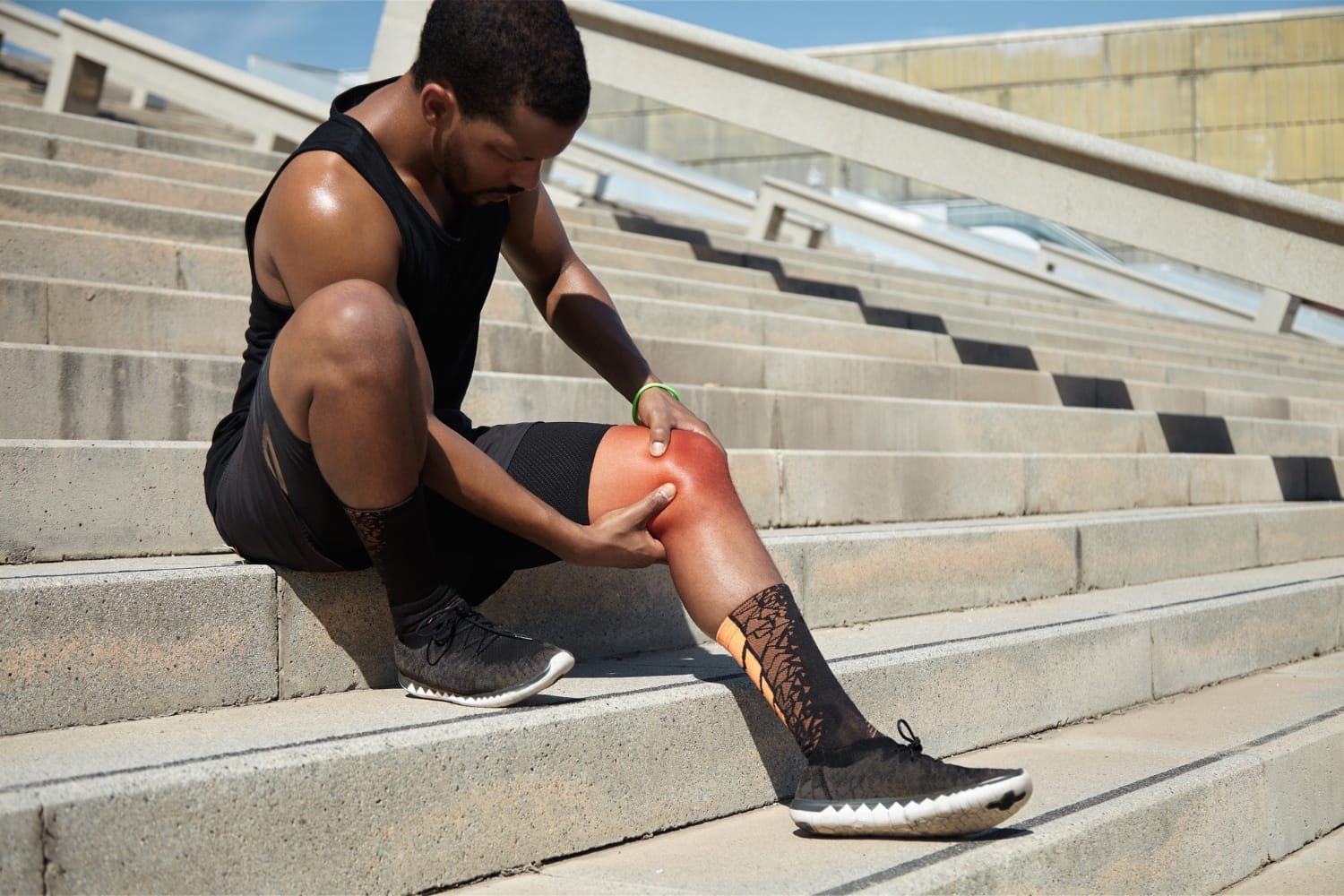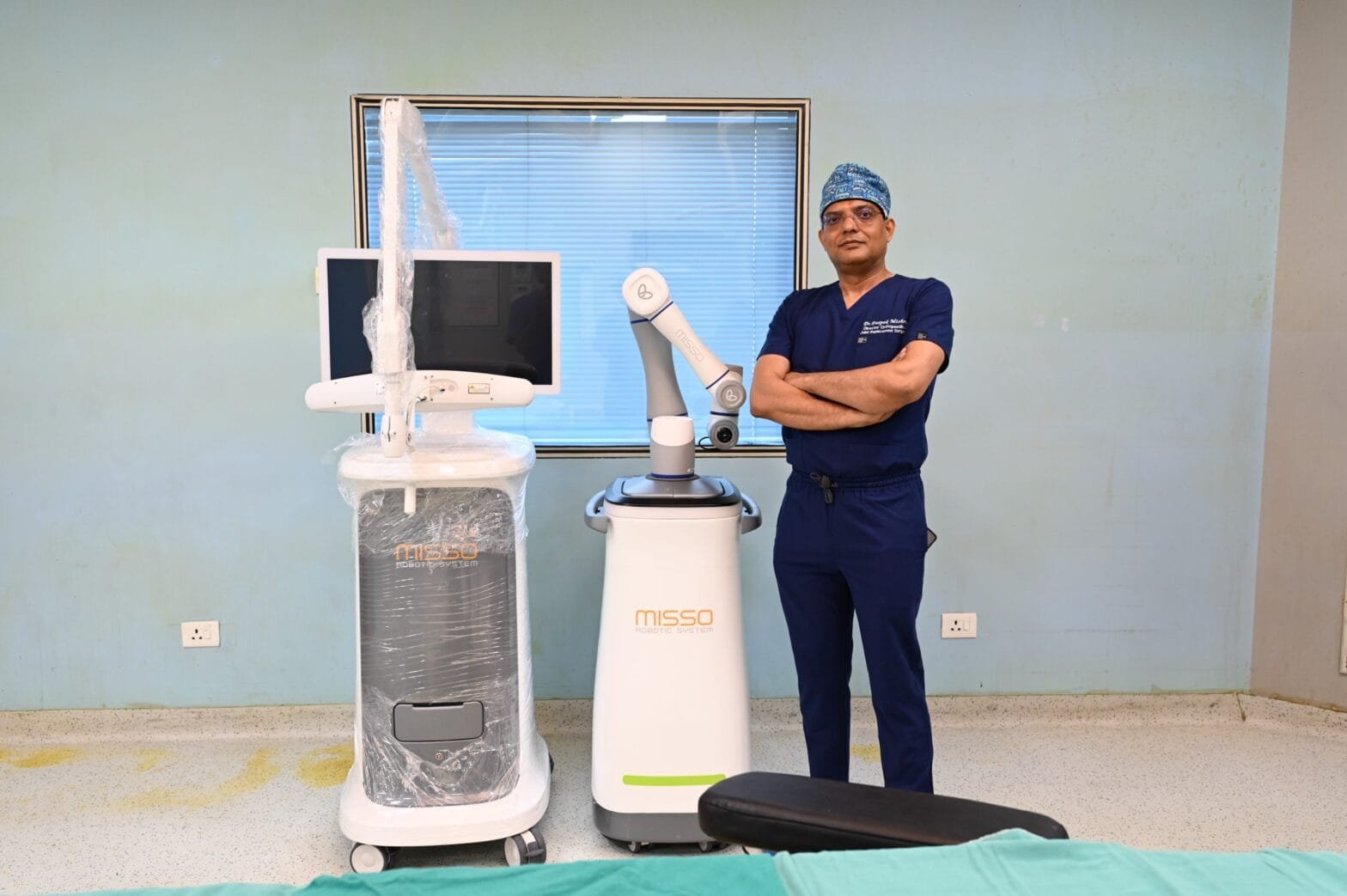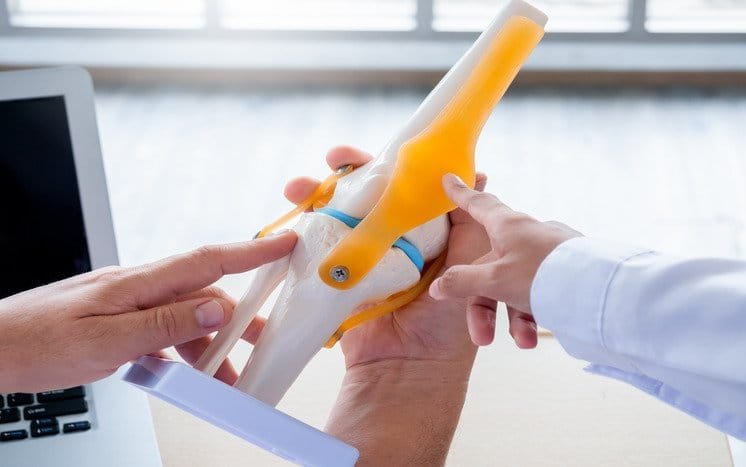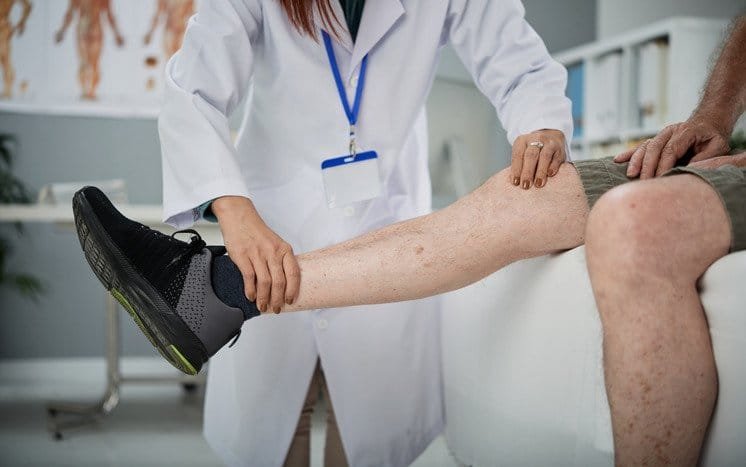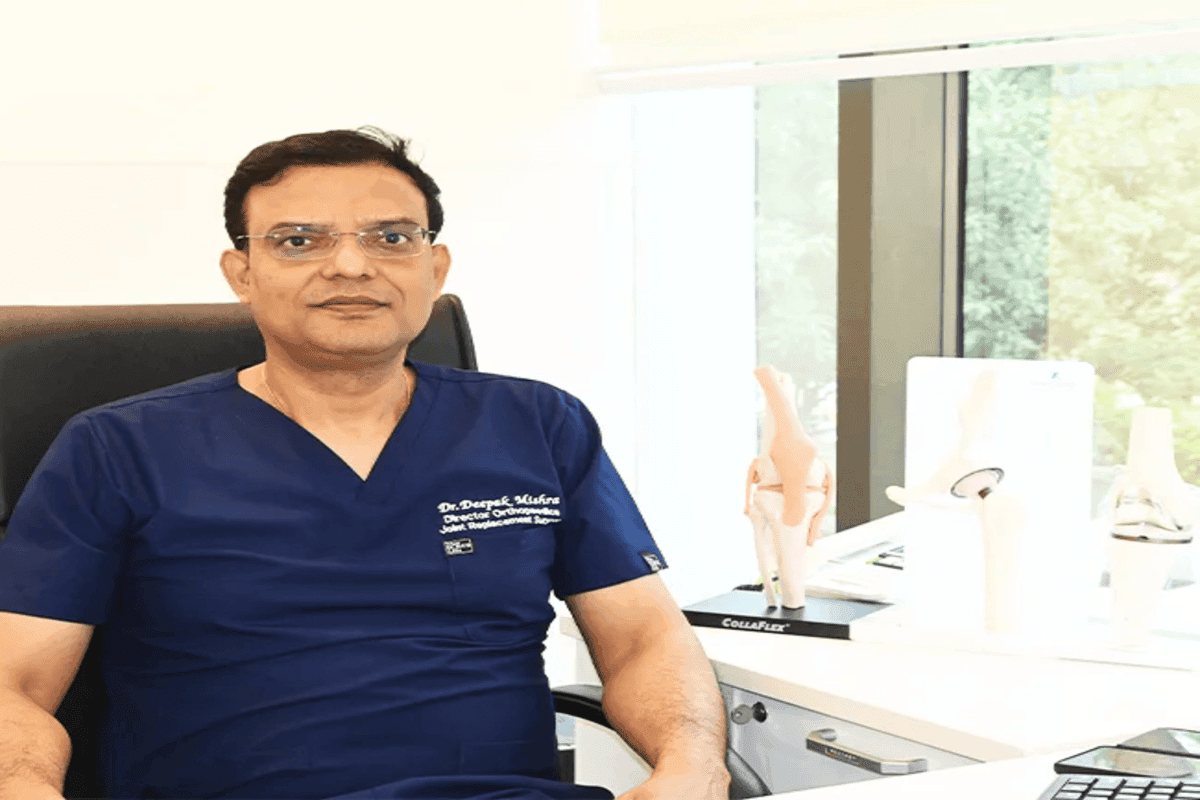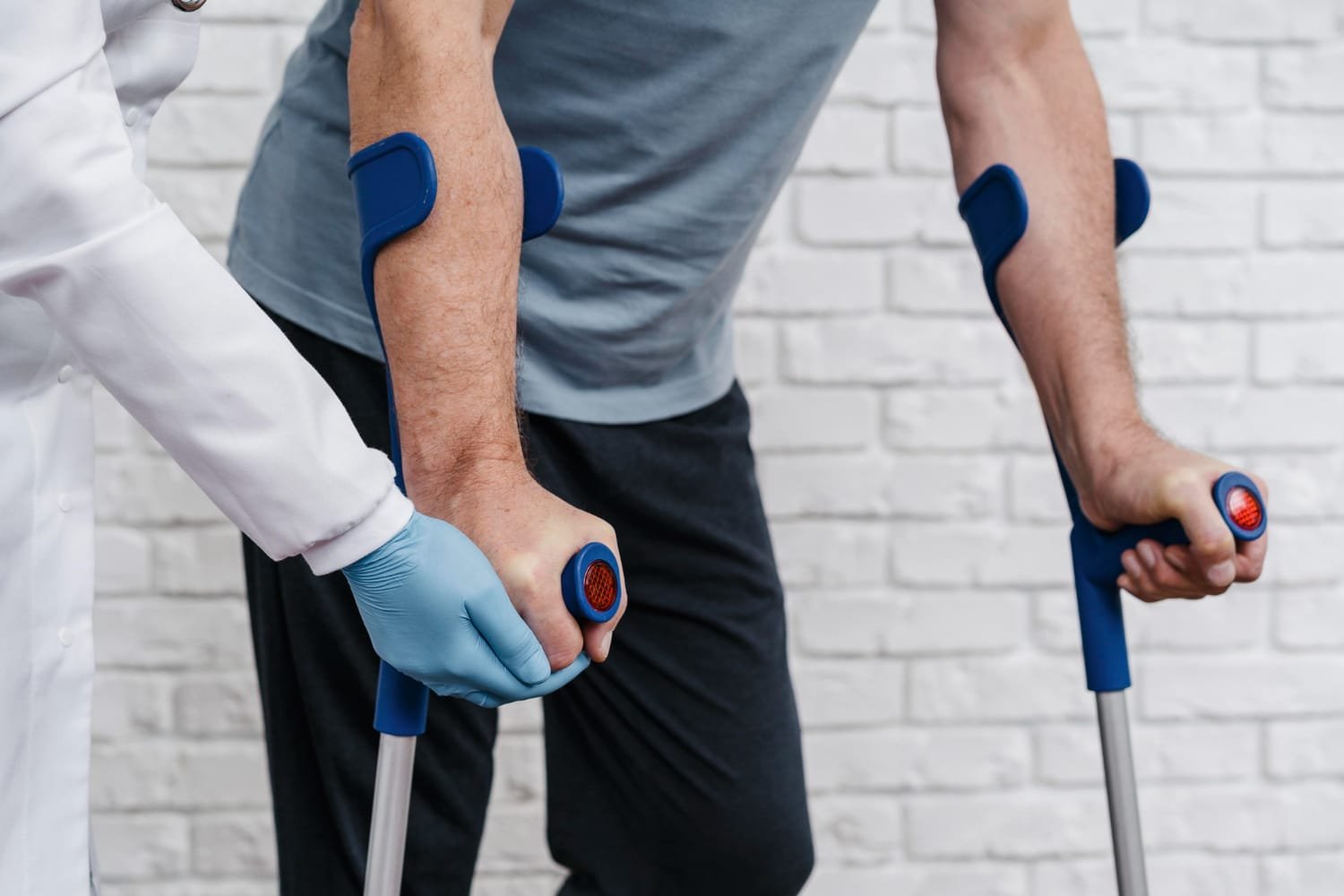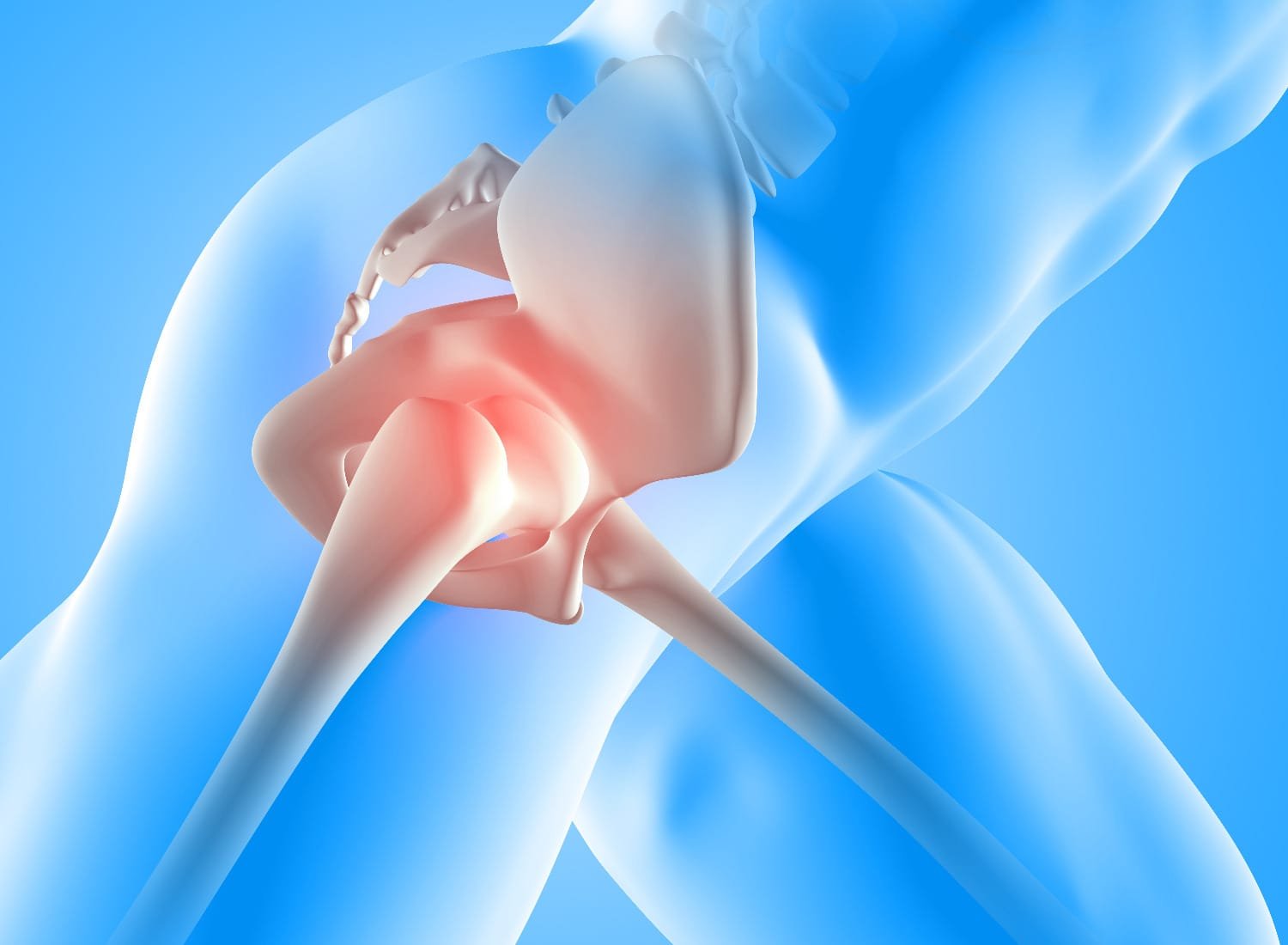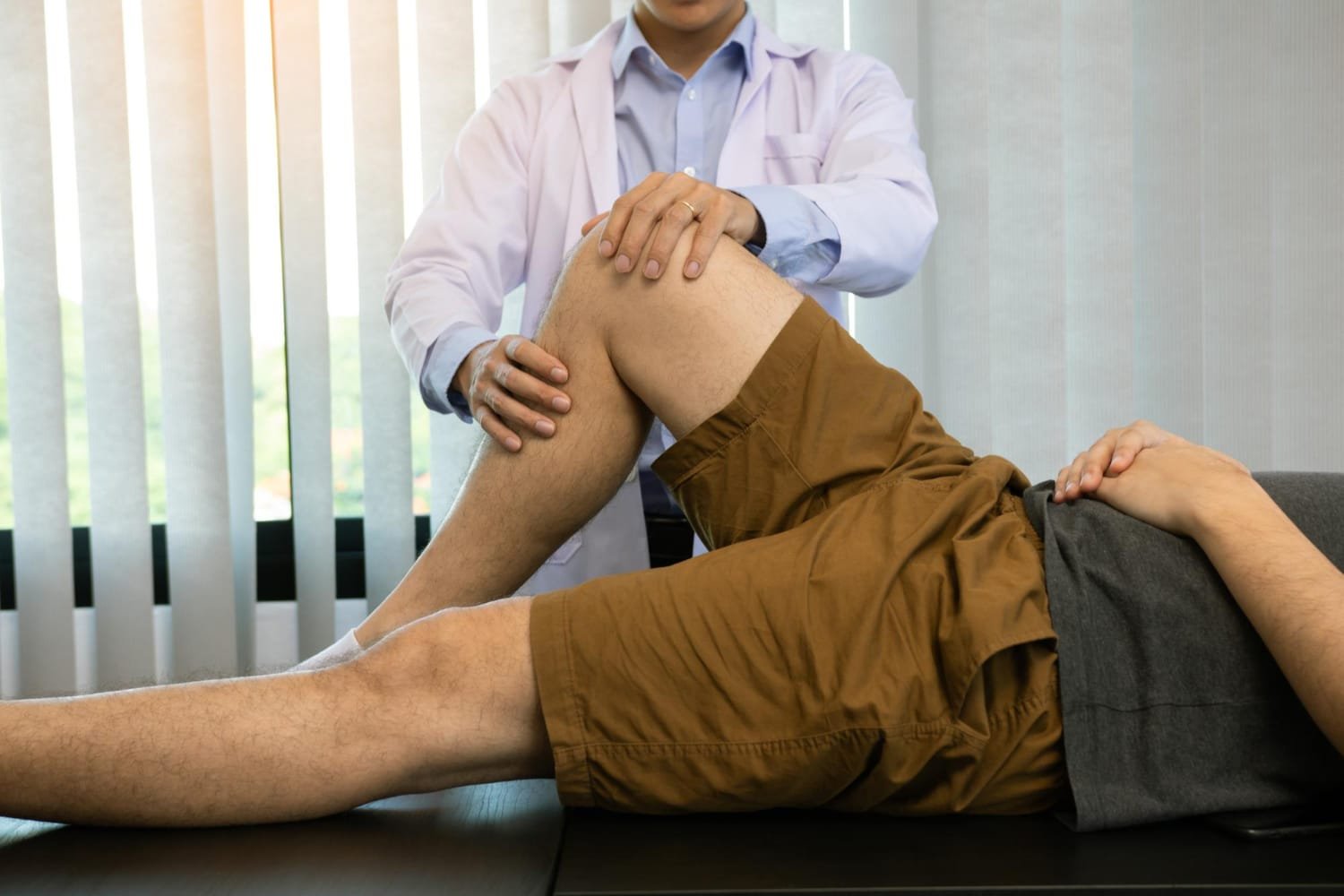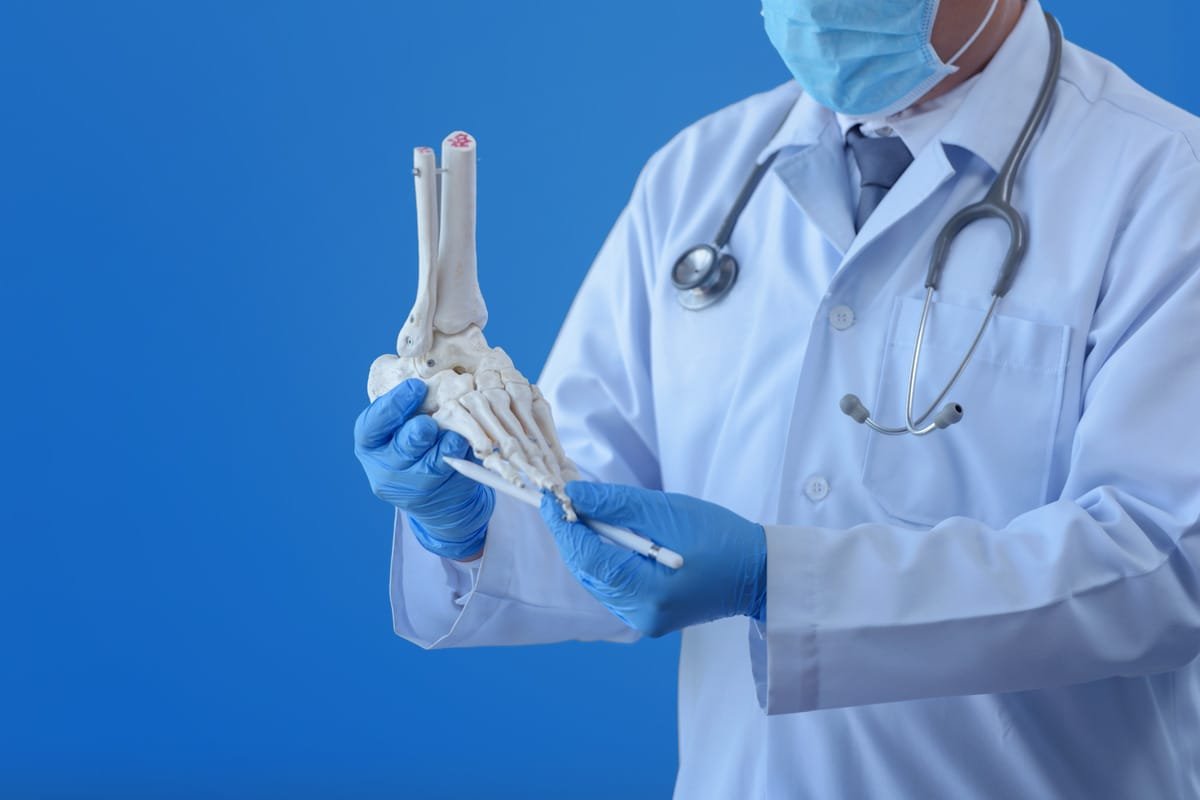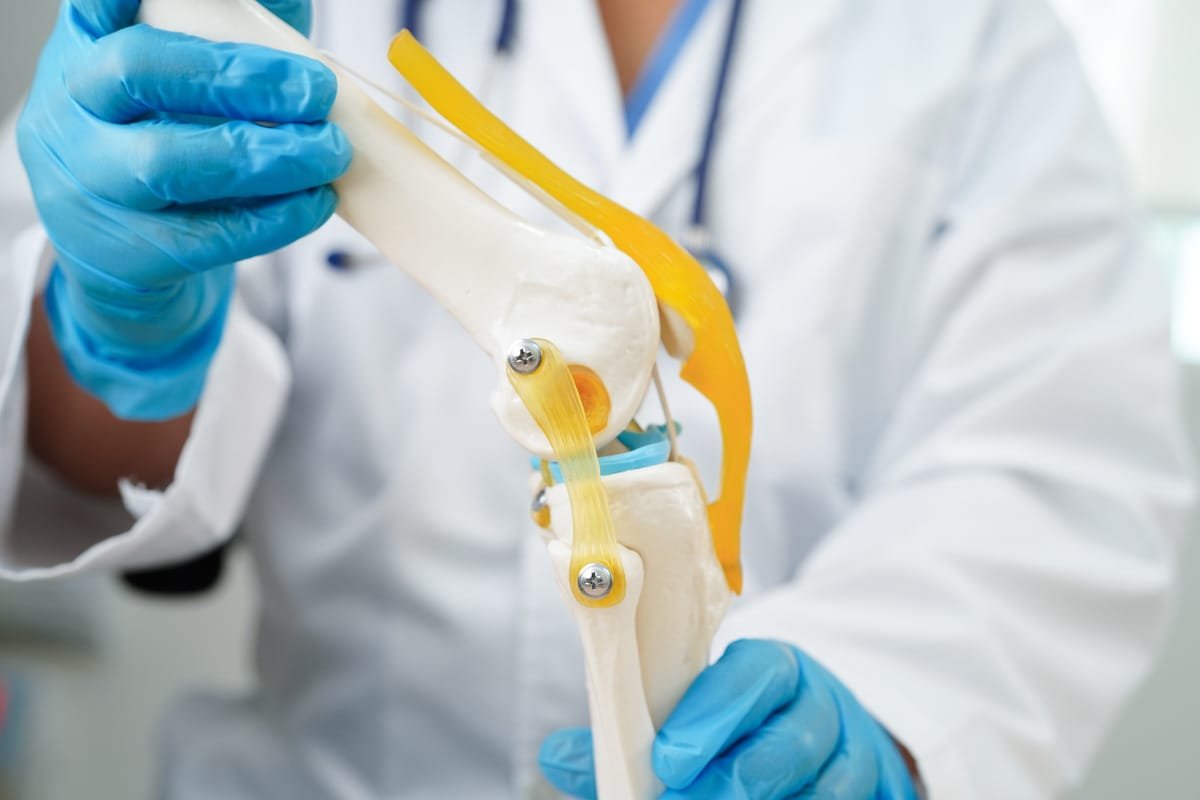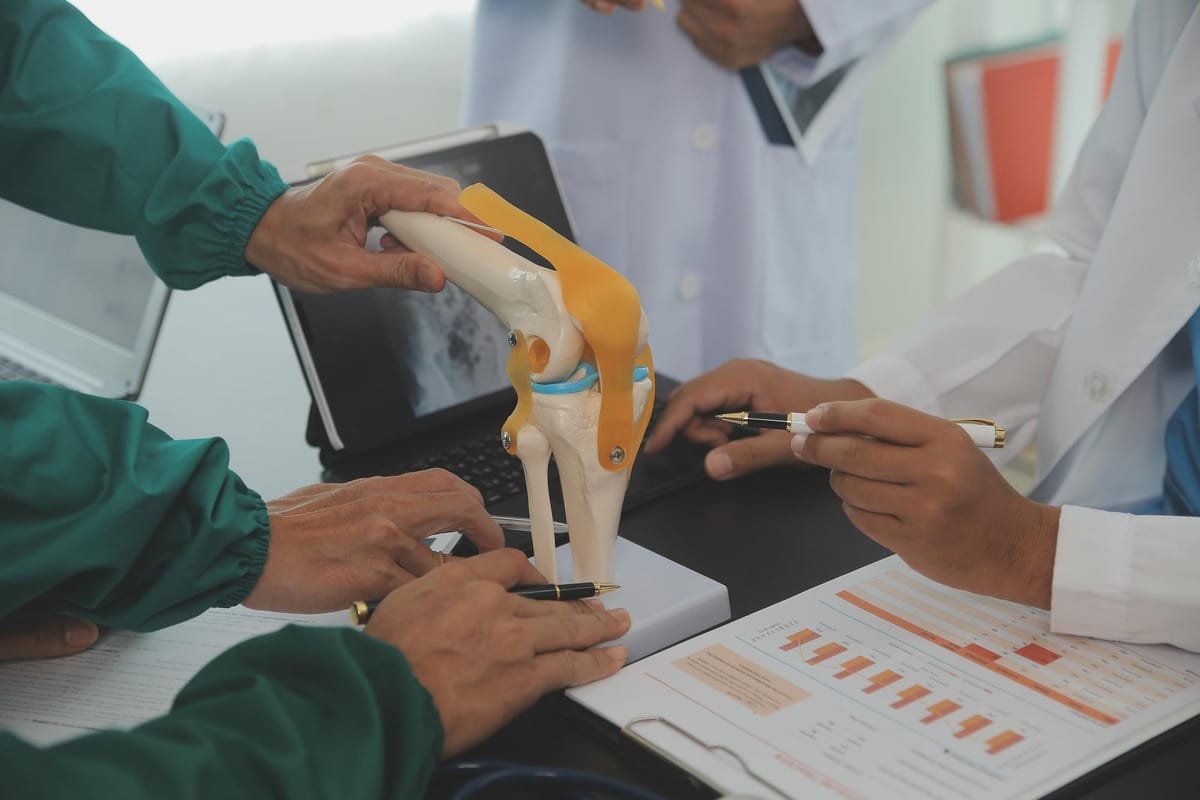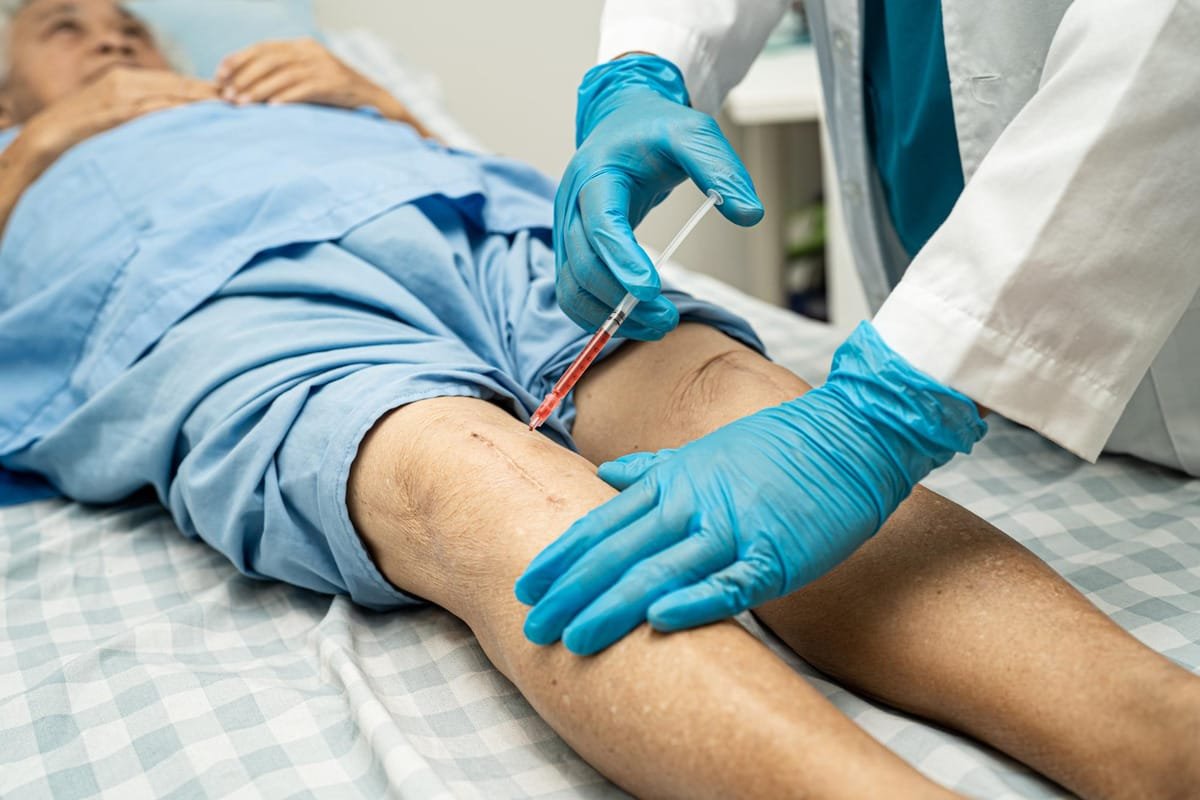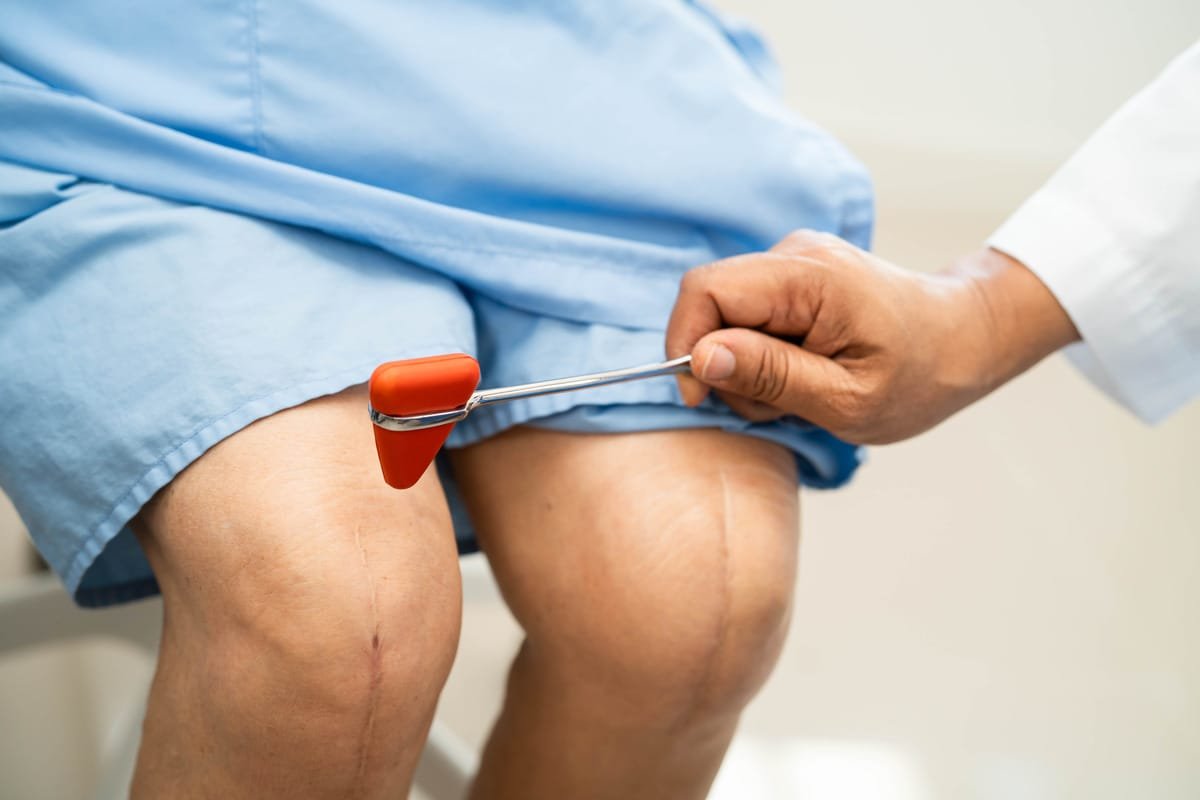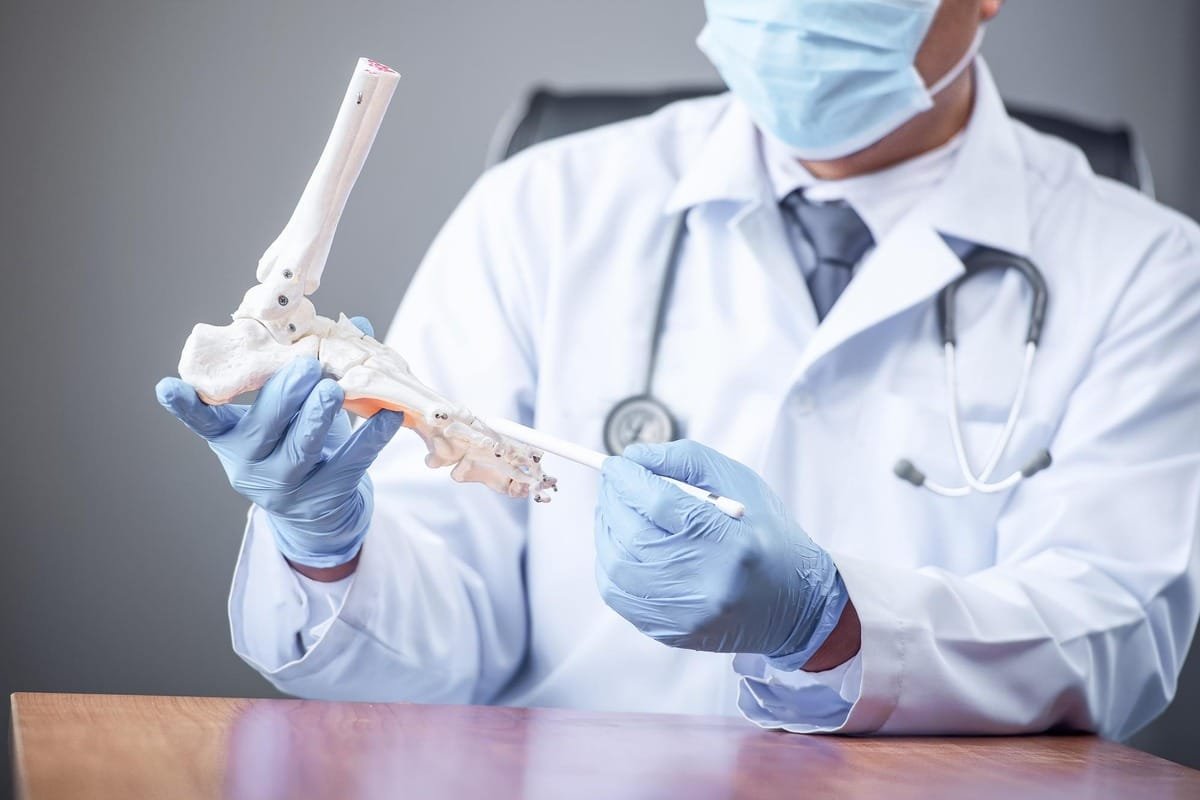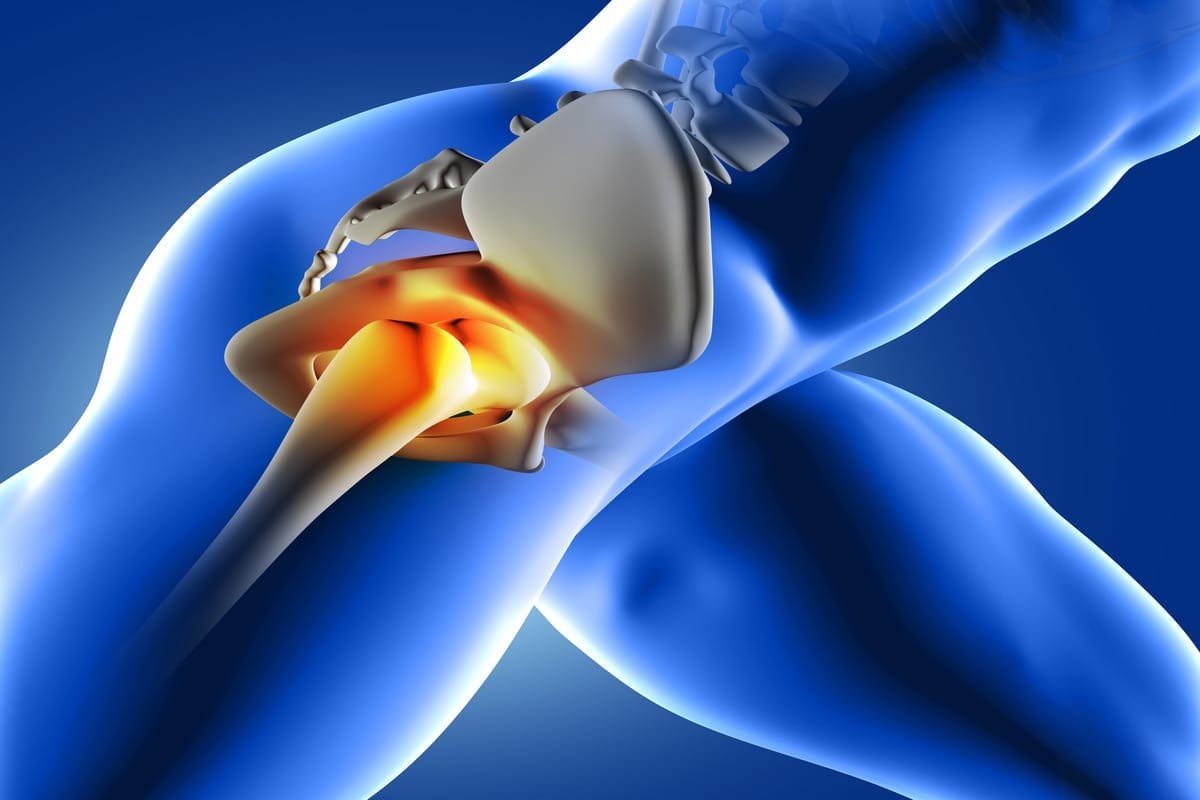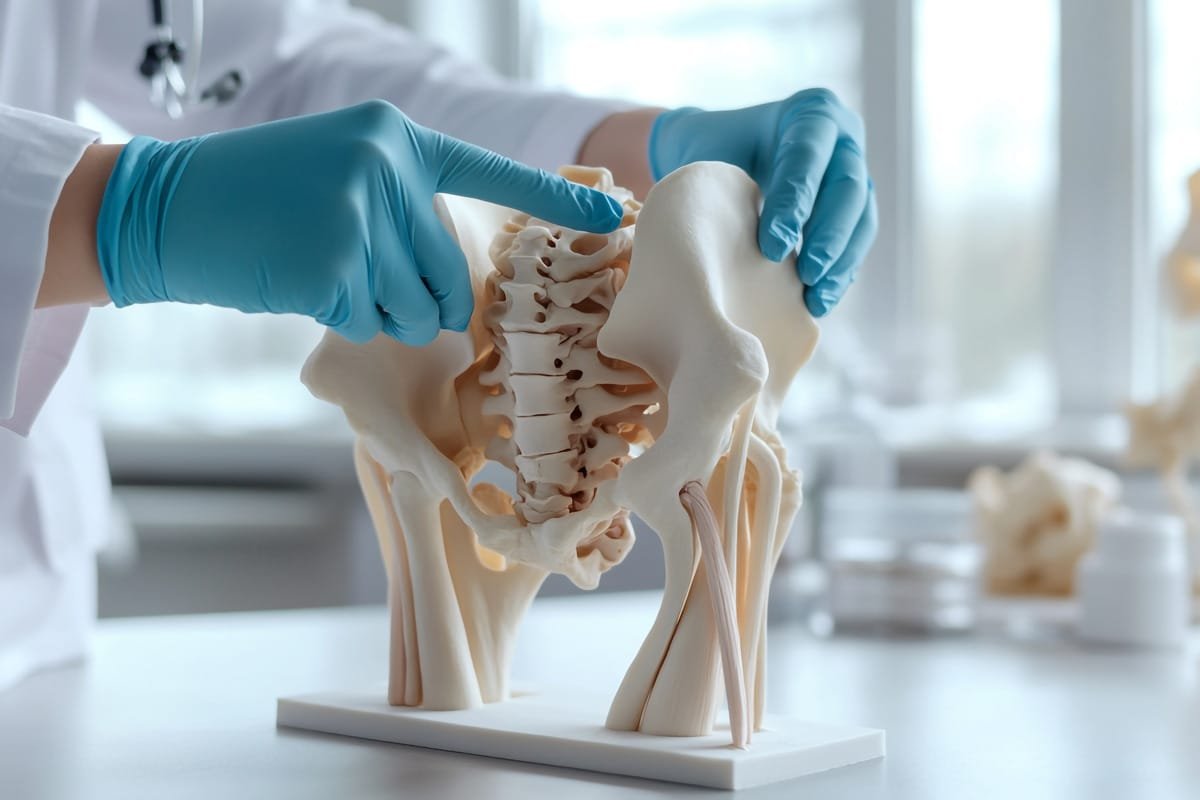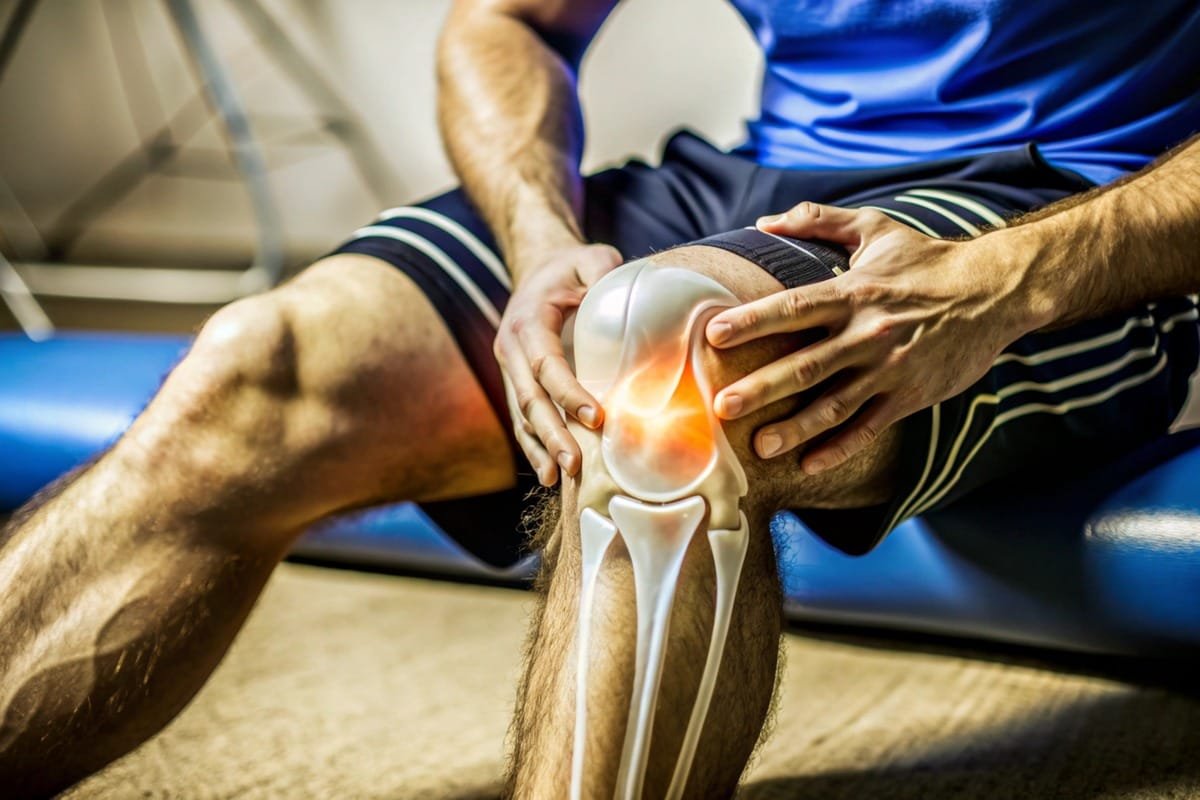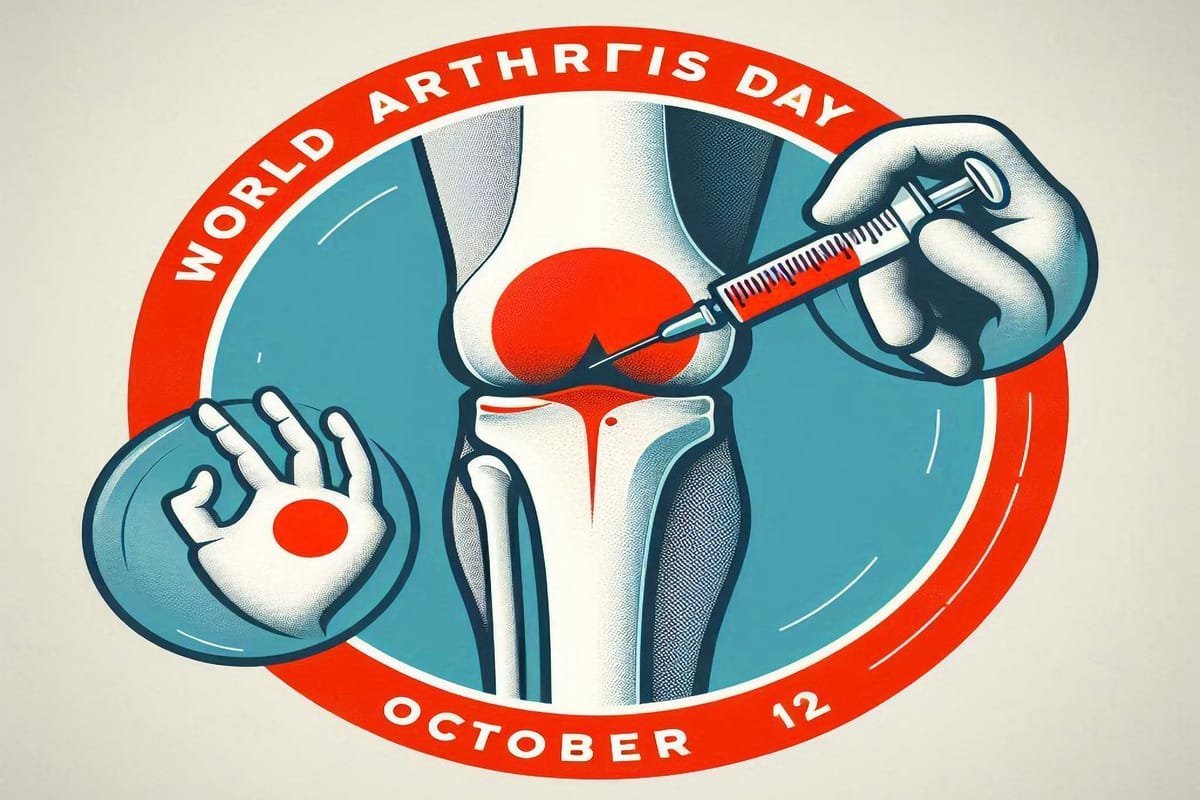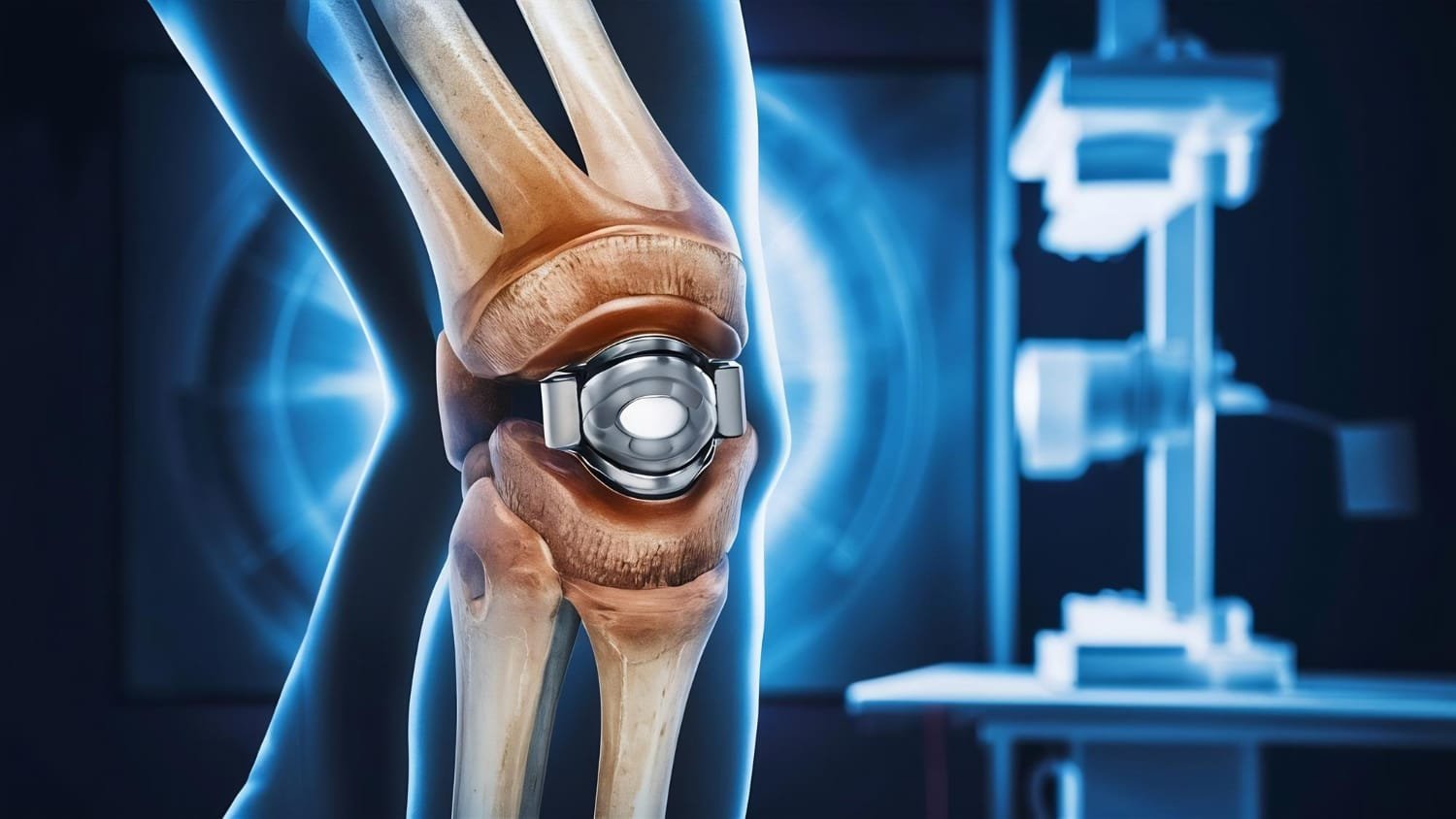
How Long Do Knee Implants Last? (10–20 Year Longevity Guide)
November 12, 2025Knee replacement surgery is one of the most successful orthopedic procedures worldwide, offering long-lasting relief from chronic knee pain and restoring mobility for millions. But one question almost every patient asks before undergoing surgery is — “How long will my knee implant last?”
Thanks to medical innovation, the latest generation of implants and surgical techniques are designed for 10 to 20 years or more of durability — and with proper care, some can last even longer.
In this detailed guide, we’ll explain what affects knee implant longevity, how you can make your new joint last longer, and why Dr. Deepak Mishra, the best orthopedic doctor in Faridabad, is trusted by thousands of patients for advanced Robotic knee replacement surgeries and long-term joint care.
Understanding Knee Implants
A knee implant (or prosthesis) is an artificial joint that replaces the damaged surfaces of the knee bones — typically the femur (thigh bone), tibia (shin bone), and patella (kneecap). It’s made from biocompatible materials like metal alloys, ceramics, and high-grade plastics that mimic the movement and strength of a natural knee.
Types of Knee Implants
- Total Knee Replacement (TKR): Replaces the entire joint.
- Partial Knee Replacement (PKR): Replaces only the damaged compartment of the knee.
- Robotic or Customized Knee Replacement: Uses advanced 3D imaging for precision alignment and implant fit.
Each type has its own longevity, depending on surgical accuracy, material quality, and postoperative care.
Average Lifespan of Knee Implants
On average, modern knee implants last between 15 to 20 years, with many lasting longer depending on patient activity, weight, and lifestyle.
According to orthopedic studies and implant registries:
- Over 90% of knee replacements still function well after 15 years.
- 80–85% of implants remain effective even after 20 years.
Some patients report comfortable knee function for up to 25 years or more, especially when treated by experienced orthopedic surgeons and following a good rehabilitation plan.
Factors That Affect Knee Implant Longevity
While the implants themselves are highly durable, their lifespan depends on several crucial factors:
1. Surgical Expertise
The most critical factor is the precision of the surgery.
- Correct alignment, joint balancing, and implant positioning are essential for even wear and smooth movement.
- This is why choosing an experienced surgeon like Dr. Deepak Mishra, known for his meticulous technique in knee replacement surgery, can significantly impact long-term success.
2. Implant Material and Design
Modern implants are made from advanced materials like oxidized zirconium, titanium alloys, and high-density polyethylene, designed to reduce friction and wear.
- High-flex implants allow more natural bending.
- Cementless designs encourage bone integration, improving stability over time.
3. Patient’s Age and Activity Level
- Younger and highly active patients may experience faster wear due to higher physical demands.
- Older or less active patients often find their implants lasting well beyond 20 years.
4. Weight Management
Excess weight puts more pressure on the artificial joint, accelerating wear. Maintaining a healthy body weight is essential for extending implant life.
5. Post-Surgery Rehabilitation
- Following a proper physiotherapy plan after surgery strengthens surrounding muscles and improves joint stability.
- Skipping rehab or overexerting too early can lead to complications or faster implant deterioration.
6. Underlying Health Conditions
Conditions like diabetes, osteoporosis, or rheumatoid arthritis can influence healing and long-term joint function.
Signs Your Knee Implant May Need Evaluation
Even though most implants last decades, they are not indestructible. Some signs that may indicate wear or loosening include:
- Persistent or increasing knee pain after years of comfort.
- Swelling, instability, or stiffness in the joint.
- Clicking or grinding sounds while walking.
- Difficulty in climbing stairs or standing up.
If you experience any of these symptoms, it’s important to consult your orthopedic specialist immediately for evaluation.
Can a Knee Implant Be Replaced?
Yes. If your knee implant wears out or loosens after 15–20 years, you may require a revision knee replacement.
- The surgeon replaces the old prosthesis with a new, more stable implant.
- Though slightly more complex than the primary surgery, modern revision techniques have very high success rates.
Dr. Deepak Mishra, one of Faridabad’s most experienced orthopedic surgeons, has extensive expertise in performing revision joint replacement surgeries with excellent outcomes and long-term patient satisfaction.
How to Make Your Knee Implant Last Longer
Here are some simple lifestyle and care tips to maximize your implant’s lifespan:
- Stay Active — but Smartly:
Engage in low-impact activities like swimming, walking, and cycling instead of running or jumping. - Maintain a Healthy Weight:
Every extra kilogram adds significant stress on your artificial joint. - Follow Physiotherapy Protocols:
Strengthen muscles around the knee through guided exercises. - Avoid High-Impact Sports:
Activities like football, basketball, or jogging can increase implant wear. - Regular Check-Ups:
Annual orthopedic check-ups can detect early signs of wear or alignment issues. - Watch for Infections:
If you have any infection elsewhere in the body, treat it promptly — infections can spread to joint implants. - Balanced Diet & Bone Health:
Ensure proper calcium and vitamin D intake to maintain strong bones that support the implant.
Dr. Deepak Mishra — The Best Orthopedic Doctor in Faridabad
When it comes to joint replacement surgery and long-term orthopedic care, Dr. Deepak Mishra is widely recognized as the best orthopedic doctor in Faridabad.
About Dr. Deepak Mishra:
- Senior Consultant & Orthopedic Specialist, Asian Hospital, Faridabad
- Over 25 years of experience in joint replacement, arthroscopy, and sports injury management
- Specialized in Total Knee Replacement (TKR), Partial Knee Replacement, and Robotic-Assisted Joint Surgery
- Known for his precision, patient-centric approach, and high success rates in both primary and revision surgeries
- Focuses on faster recovery, pain-free mobility, and long-term implant durability
Appointment: +91 8287334003
Dr. Mishra and his team provide comprehensive care — from pre-surgical counseling to advanced post-operative rehabilitation — ensuring every patient regains confidence and mobility after surgery.
Why Choose an Experienced Surgeon for Knee Replacement?
- Ensures accurate implant alignment and fit
- Minimizes the risk of early wear and revision surgery
- Reduces recovery time and improves range of motion
- Delivers predictable, long-lasting results
A successful knee replacement is not just about the implant — it’s about the expertise behind it. That’s why patients across Delhi NCR trust Dr. Deepak Mishra for safe, precise, and durable knee replacement outcomes.
Final Thoughts
Modern knee implants are built to last — typically 15 to 20 years or more, depending on care, lifestyle, and surgical precision. With today’s advanced materials and robotic-assisted techniques, many patients enjoy pain-free mobility well into their 70s and 80s without needing another surgery.
If you’re considering knee replacement or want expert advice on preserving your joint health, consult Dr. Deepak Mishra, the best orthopedic doctor in Faridabad. His vast experience, compassionate care, and cutting-edge surgical expertise ensure you walk into a future full of movement, strength, and confidence.
Your new knees deserve the best care — and Dr. Deepak Mishra delivers exactly that.
Recent Blogs
-
 Post Operative Exercises
Post Operative Exercises- 1, March 2026
-
 After ACL Surgery When Can I Walk?
After ACL Surgery When Can I Walk?- 1, March 2026
-
 What Happens If Knee Arthritis Is Left Untreated?
What Happens If Knee Arthritis Is Left Untreated?- 21, February 2026
-
 Can Knee Replacement Fail? Causes, Signs & Prevention
Can Knee Replacement Fail? Causes, Signs & Prevention- 21, February 2026
-
 Who Is Not Suitable for Knee Replacement Surgery?
Who Is Not Suitable for Knee Replacement Surgery?- 12, February 2026
-
 Best Meniscus Injury Surgeon in Faridabad
Best Meniscus Injury Surgeon in Faridabad- 9, February 2026
-
 How Obesity Affects Knee Health & When to Consider Knee Replacement
How Obesity Affects Knee Health & When to Consider Knee Replacement- 6, February 2026
-
 Knee Pain After Sitting for Long Hours – What to Do
Knee Pain After Sitting for Long Hours – What to Do- 3, February 2026
-
 Most Common Sports Injuries and How to Prevent Them
Most Common Sports Injuries and How to Prevent Them- 26, January 2026
-
 Walking, Stairs & Daily Activities After Knee Replacement
Walking, Stairs & Daily Activities After Knee Replacement- 22, January 2026
-
 When Knee Pain Needs Medical Attention: Red Flags to Watch
When Knee Pain Needs Medical Attention: Red Flags to Watch- 19, January 2026
-
 Cartilage Damage in Sports: Early Signs Athletes Should Not Ignore
Cartilage Damage in Sports: Early Signs Athletes Should Not Ignore- 15, January 2026
-
 Can You Sit Cross-Legged After Knee Replacement?
Can You Sit Cross-Legged After Knee Replacement?- 13, January 2026
-
 Types of Knee Implants
Types of Knee Implants- 13, January 2026
-
 Special Tests for Knee Osteoarthritis
Special Tests for Knee Osteoarthritis- 7, January 2026
-
 Knee Operation Types: A Comprehensive Guide
Knee Operation Types: A Comprehensive Guide- 7, January 2026
-
 Difference Between Knee Arthritis, Meniscus Tear, and Ligament Injury
Difference Between Knee Arthritis, Meniscus Tear, and Ligament Injury- 30, December 2025
-
 Knee Pain While Walking: When Should You Worry?
Knee Pain While Walking: When Should You Worry?- 30, December 2025
-
 What Happens If Knee Replacement Is Delayed Too Long?
What Happens If Knee Replacement Is Delayed Too Long?- 24, December 2025
-
 How Cartilage Loss Leads to Chronic Knee Pain
How Cartilage Loss Leads to Chronic Knee Pain- 24, December 2025
-
 ACL Tears in Athletes: Symptoms, Treatment Options & Recovery
ACL Tears in Athletes: Symptoms, Treatment Options & Recovery- 19, November 2025
-
 Sports Injuries That Often Lead to Knee Replacement
Sports Injuries That Often Lead to Knee Replacement- 19, November 2025
-
 Orthopedic Care for Elderly Patients — A Complete Guide
Orthopedic Care for Elderly Patients — A Complete Guide- 12, November 2025
-
 How Long Do Knee Implants Last? (10–20 Year Longevity Guide)
How Long Do Knee Implants Last? (10–20 Year Longevity Guide)- 12, November 2025
-
 Importance of Early Diagnosis in Bone and Joint Problems
Importance of Early Diagnosis in Bone and Joint Problems- 28, October 2025
-
 Best Treatment Options for Sports Injuries
Best Treatment Options for Sports Injuries- 28, October 2025
-
 The Difference Between ACL Tear, Sprain, and Rupture
The Difference Between ACL Tear, Sprain, and Rupture- 16, October 2025
-
 Post-ACL Surgery Do’s and Don’ts
Post-ACL Surgery Do’s and Don’ts- 16, October 2025
-
 Early Signs You Might Have an ACL Injury (and When to See a Doctor)
Early Signs You Might Have an ACL Injury (and When to See a Doctor)- 16, October 2025
-
 Does Insurance Cover Robotic Knee Replacement Surgery?
Does Insurance Cover Robotic Knee Replacement Surgery?- 6, October 2025
-
 When Can You Return to Sports After Robotic Knee Replacement?
When Can You Return to Sports After Robotic Knee Replacement?- 6, October 2025
-
 Impact of Obesity on Knee Replacement Surgery and Recovery
Impact of Obesity on Knee Replacement Surgery and Recovery- 30, September 2025
-
 Early vs. Delayed Knee Replacement: Which Is Better?
Early vs. Delayed Knee Replacement: Which Is Better?- 30, September 2025
-
 How Durable Are Knee Implants? A Complete Guide
How Durable Are Knee Implants? A Complete Guide- 24, September 2025
-
 Can You Play Sports After Knee Replacement Surgery?
Can You Play Sports After Knee Replacement Surgery?- 24, September 2025
-
 Key Benefits of Revision Hip Replacement You Should Know
Key Benefits of Revision Hip Replacement You Should Know- 15, September 2025
-
 Revision Hip Replacement vs. Primary Hip Replacement: Key Differences
Revision Hip Replacement vs. Primary Hip Replacement: Key Differences- 15, September 2025
-

-
 Total Knee Replacement Complications: What You Need to Know
Total Knee Replacement Complications: What You Need to Know- 5, September 2025
-
 Can You Play Sports After Hip Replacement Surgery?
Can You Play Sports After Hip Replacement Surgery?- 26, August 2025
-
 Preparing for Knee Replacement: Do’s and Don’ts Before Surgery
Preparing for Knee Replacement: Do’s and Don’ts Before Surgery- 26, August 2025
-

-
 What to Know About Knee Replacement Revision Surgery
What to Know About Knee Replacement Revision Surgery- 18, August 2025
-
 Cost of Hip Replacement in India – What Patients Should Know
Cost of Hip Replacement in India – What Patients Should Know- 11, August 2025
-

-
 Who Is the Best Orthopedic Doctor for Sports Injuries?
Who Is the Best Orthopedic Doctor for Sports Injuries?- 27, July 2025
-
 Success Rate of Robotic Knee Replacement in India
Success Rate of Robotic Knee Replacement in India- 27, July 2025
-
 Why Surgeons Are Switching to Robotic Knee Replacements
Why Surgeons Are Switching to Robotic Knee Replacements- 15, July 2025
-
 Do’s and Don’ts After Knee Replacement Surgery
Do’s and Don’ts After Knee Replacement Surgery- 15, July 2025
-
 Best Robotic Knee Replacement in India
Best Robotic Knee Replacement in India- 7, July 2025
-
 Affordable Robotic Knee Replacement in India
Affordable Robotic Knee Replacement in India- 7, July 2025
-

-

-

-

-

-

-

-
 Orthopedic Meaning, Definition, Types, and More
Orthopedic Meaning, Definition, Types, and More- 6, June 2025
-
 What Are the Most Common Orthopedic Surgeries?
What Are the Most Common Orthopedic Surgeries?- 24, May 2025
-
 What Does an Orthopedic Doctor Do?
What Does an Orthopedic Doctor Do?- 24, May 2025
-

-

-

-
 Best Orthopedic Doctor for Knee Pain in Faridabad
Best Orthopedic Doctor for Knee Pain in Faridabad- 12, May 2025
-
 How to Prevent Knee Pain with Orthopedic Expert Tips
How to Prevent Knee Pain with Orthopedic Expert Tips- 29, April 2025
-

-
 Best Orthopedic Treatment in Faridabad: What You Should Know
Best Orthopedic Treatment in Faridabad: What You Should Know- 29, April 2025
-

-

-
 Best Knee Replacement Surgeon in Mathura
Best Knee Replacement Surgeon in Mathura- 14, April 2025
-
 Best Knee Replacement Surgeon in Hodal
Best Knee Replacement Surgeon in Hodal- 14, April 2025
-
 Best Knee Replacement Surgeon in Palwal
Best Knee Replacement Surgeon in Palwal- 14, April 2025
-

-

-

-
 Benefits of Minimally Invasive Knee Surgery
Benefits of Minimally Invasive Knee Surgery- 24, March 2025
-
 Best knee Replacement Surgeon in India
Best knee Replacement Surgeon in India- 17, March 2025
-

-
 How to Recover Quickly After Knee Replacement Surgery
How to Recover Quickly After Knee Replacement Surgery- 10, March 2025
-

-

-

-
 Minimally Invasive Arthroplasty: Benefits and Recovery Advantages
Minimally Invasive Arthroplasty: Benefits and Recovery Advantages- 24, February 2025
-
 Common Mistakes to Avoid After Joint Replacement Surgery
Common Mistakes to Avoid After Joint Replacement Surgery- 24, February 2025
-
 Choosing the Right Hip Replacement Surgeon: A Comprehensive Guide
Choosing the Right Hip Replacement Surgeon: A Comprehensive Guide- 17, February 2025
-
 Restoring Mobility: The Role of Knee Replacement Doctors
Restoring Mobility: The Role of Knee Replacement Doctors- 17, February 2025
-
 Orthopedic Trauma Care for Athletes
Orthopedic Trauma Care for Athletes- 6, February 2025
-
 Best Doctor for ACL Tear Treatment
Best Doctor for ACL Tear Treatment- 6, February 2025
-
 Best Sports Medicine Doctor for Knee Injuries
Best Sports Medicine Doctor for Knee Injuries- 6, February 2025
-
 Orthopedic Surgeons: 7 Things You Need to Know
Orthopedic Surgeons: 7 Things You Need to Know- 27, January 2025
-
 Best Joint Replacement Surgeon in Greater Faridabad
Best Joint Replacement Surgeon in Greater Faridabad- 27, January 2025
-
 Best Knee Replacement Surgeon in Palwal
Best Knee Replacement Surgeon in Palwal- 20, January 2025
-
 Best Knee Replacement Surgeon in South Delhi
Best Knee Replacement Surgeon in South Delhi- 20, January 2025
-
 Signs You May Need a Knee Replacement: Insights from a Surgeon
Signs You May Need a Knee Replacement: Insights from a Surgeon- 13, January 2025
-
 Restoring Mobility: The Role of Knee Replacement Doctor
Restoring Mobility: The Role of Knee Replacement Doctor- 13, January 2025
-
 Robotic Knee Replacement Surgery in Delhi
Robotic Knee Replacement Surgery in Delhi- 30, December 2024
-
 Robotic Orthopedic Surgery: Revolutionizing Joint Replacement and Repair
Robotic Orthopedic Surgery: Revolutionizing Joint Replacement and Repair- 30, December 2024
-
 Robotic Knee Replacement vs. Traditional Surgery: A Comparative Guide
Robotic Knee Replacement vs. Traditional Surgery: A Comparative Guide- 23, December 2024
-
 How to Make Joints Stronger: A Comprehensive Guide
How to Make Joints Stronger: A Comprehensive Guide- 23, December 2024
-
 Common Knee Conditions and How a Knee Surgeon Can Help
Common Knee Conditions and How a Knee Surgeon Can Help- 16, December 2024
-

-

-
 Orthopedic Surgeons: 7 Things You Need to Know
Orthopedic Surgeons: 7 Things You Need to Know- 6, December 2024
-
 Top 5 Mistakes After Knee Replacement
Top 5 Mistakes After Knee Replacement- 25, November 2024
-
 Advantages and Disadvantages of Robotic Knee Replacement
Advantages and Disadvantages of Robotic Knee Replacement- 25, November 2024
-
 When to See an Orthopedic Specialist: Recognizing Early Signs
When to See an Orthopedic Specialist: Recognizing Early Signs- 15, November 2024
-
 Benefits of Robotic-Assisted Knee Replacement Surgery
Benefits of Robotic-Assisted Knee Replacement Surgery- 15, November 2024
-
 Knee Replacement Surgery Cost
Knee Replacement Surgery Cost- 8, November 2024
-
 Best Robotic Knee Replacement Surgeon in Faridabad
Best Robotic Knee Replacement Surgeon in Faridabad- 8, November 2024
-

-
 Knee Replacement Surgery: Types, Benefits, and Recovery Timeline
Knee Replacement Surgery: Types, Benefits, and Recovery Timeline- 28, October 2024
-
 What is Osteoporosis? Symptoms, Causes, and Prevention
What is Osteoporosis? Symptoms, Causes, and Prevention- 21, October 2024
-
 Signs It’s Time for a Knee Replacement: When to Consult a Surgeon
Signs It’s Time for a Knee Replacement: When to Consult a Surgeon- 18, October 2024
-
 Understanding Different Types of Arthritis: Symptoms and Causes
Understanding Different Types of Arthritis: Symptoms and Causes- 11, October 2024
-
 Taking Care After Knee Replacement Surgery
Taking Care After Knee Replacement Surgery- 15, December 2022
-
 Amazing Ways to Get Relief from Arthritis Pain Naturally
Amazing Ways to Get Relief from Arthritis Pain Naturally- 2, December 2022
-

-
 How Does Fat Affect Arthritis?
How Does Fat Affect Arthritis?- 4, November 2022

